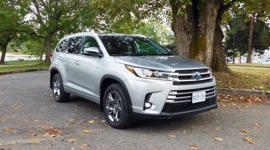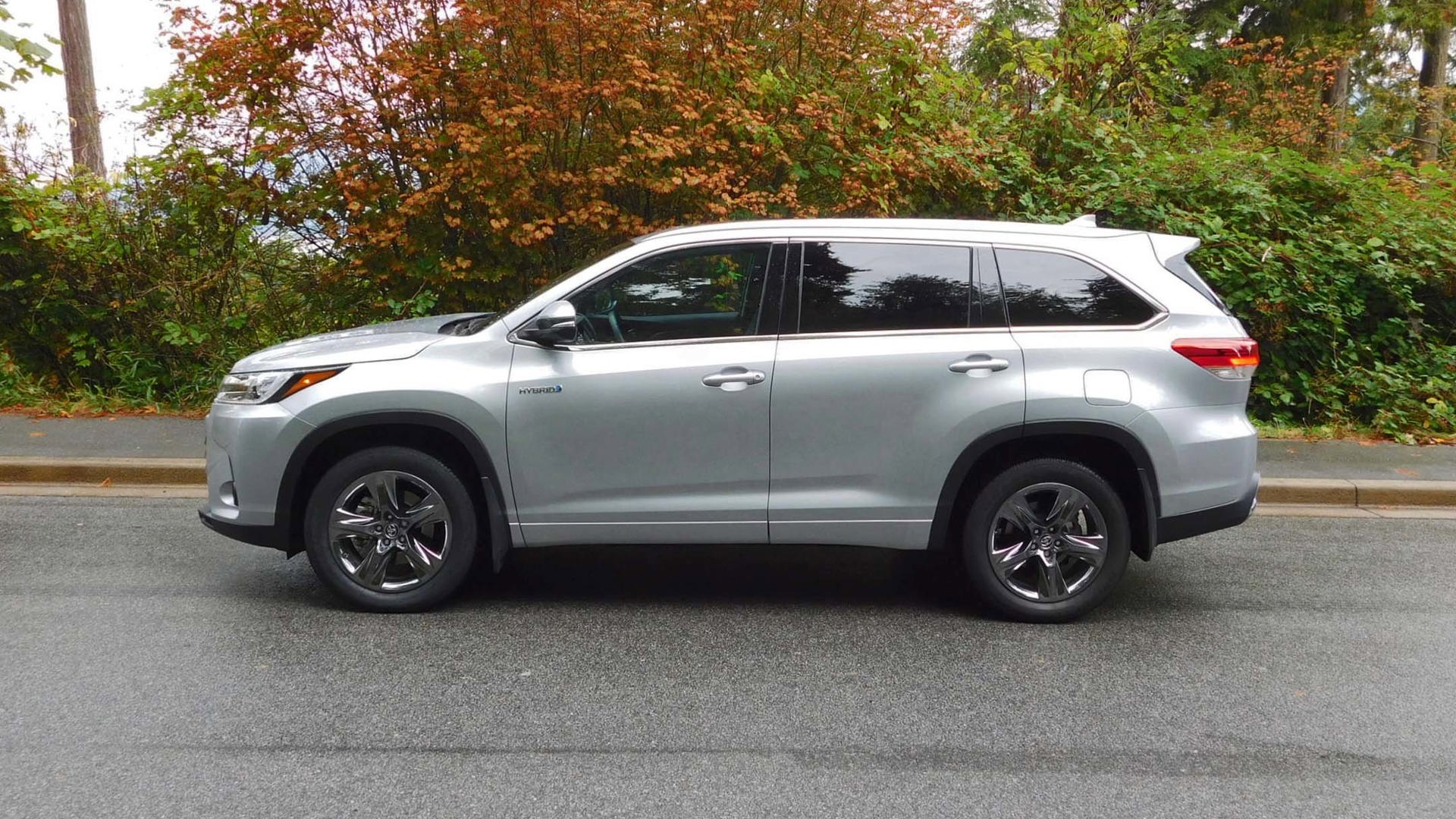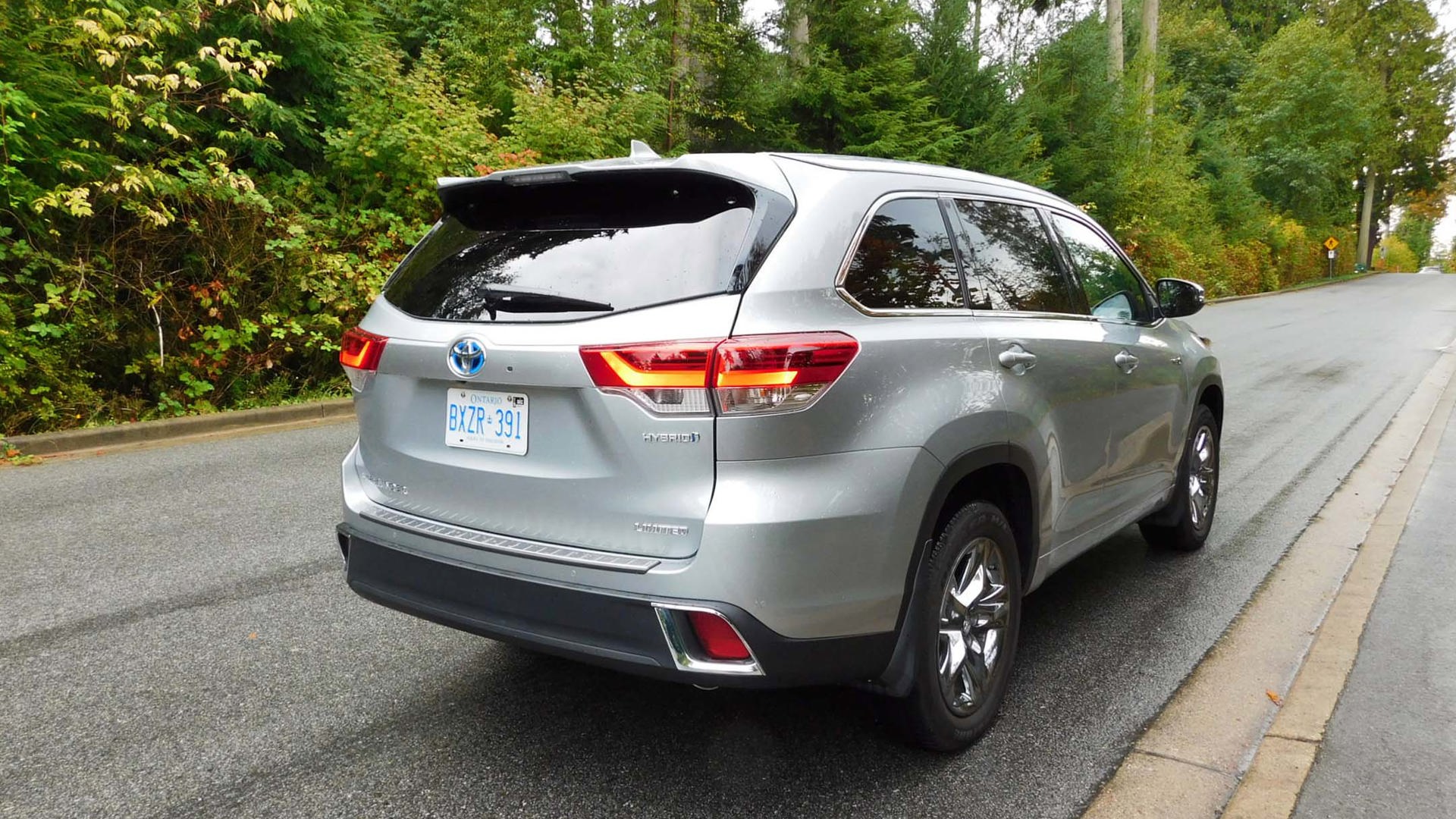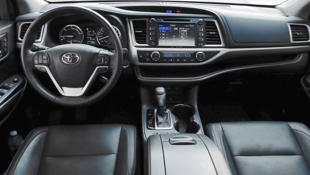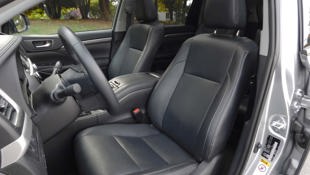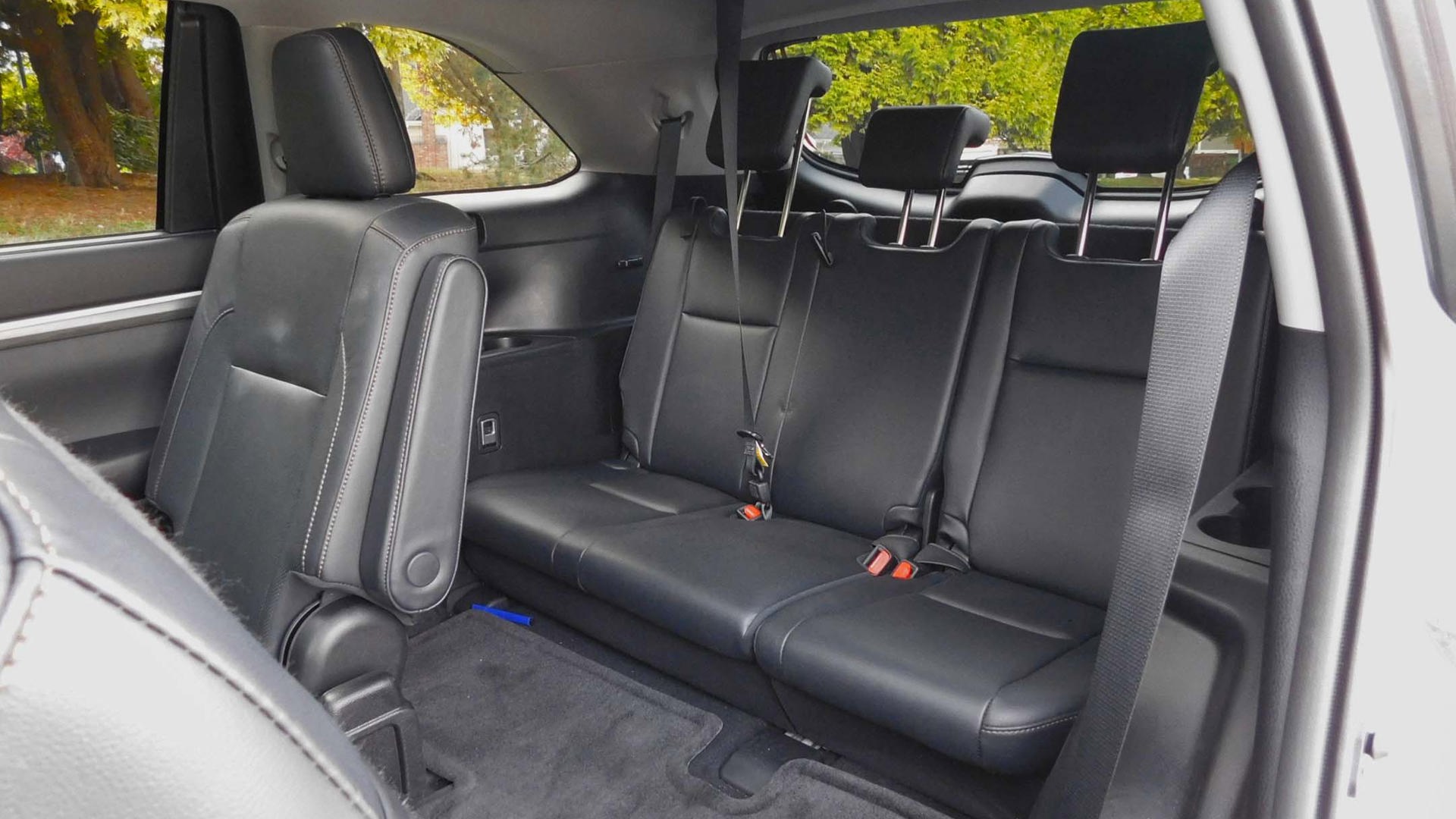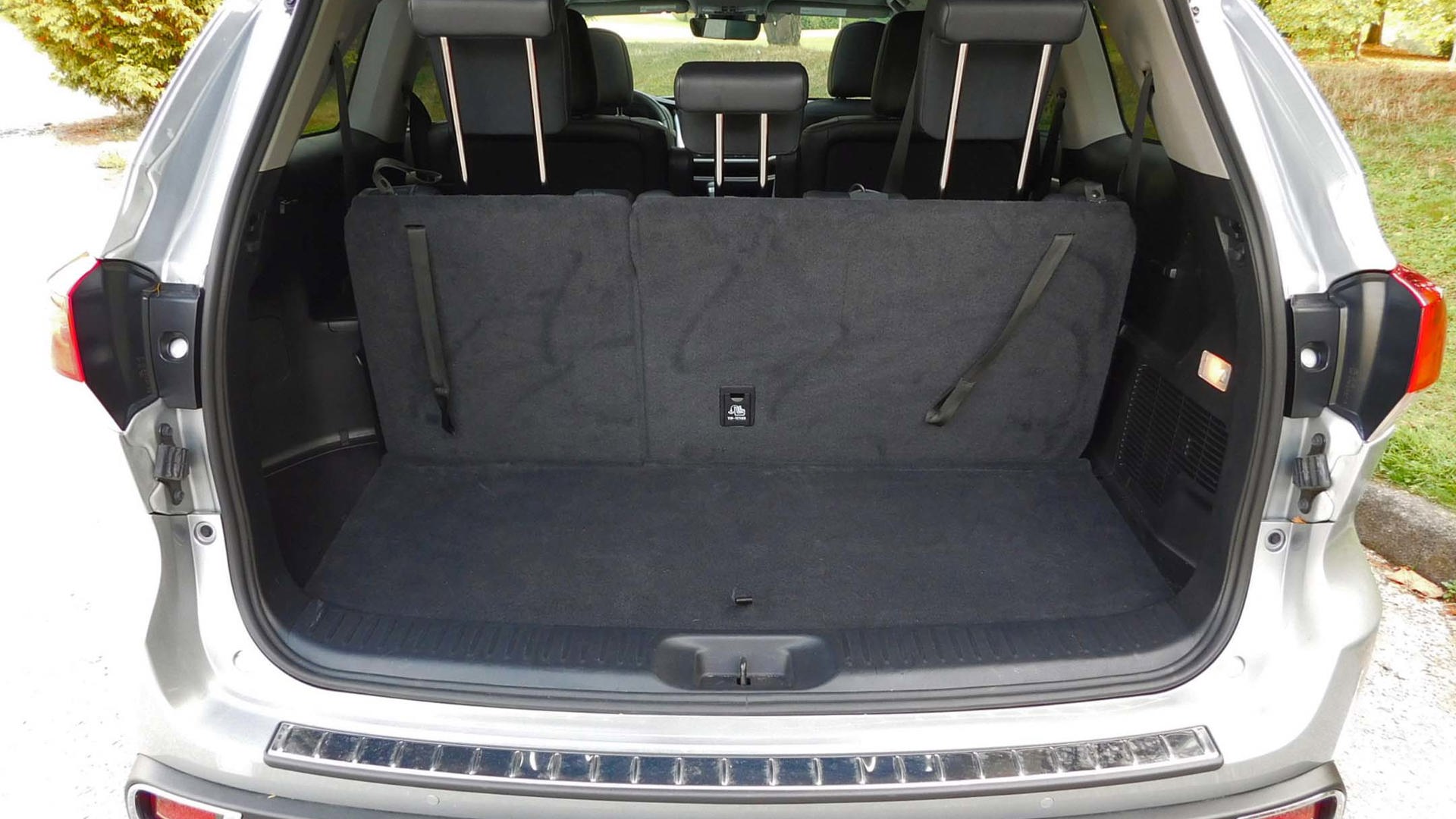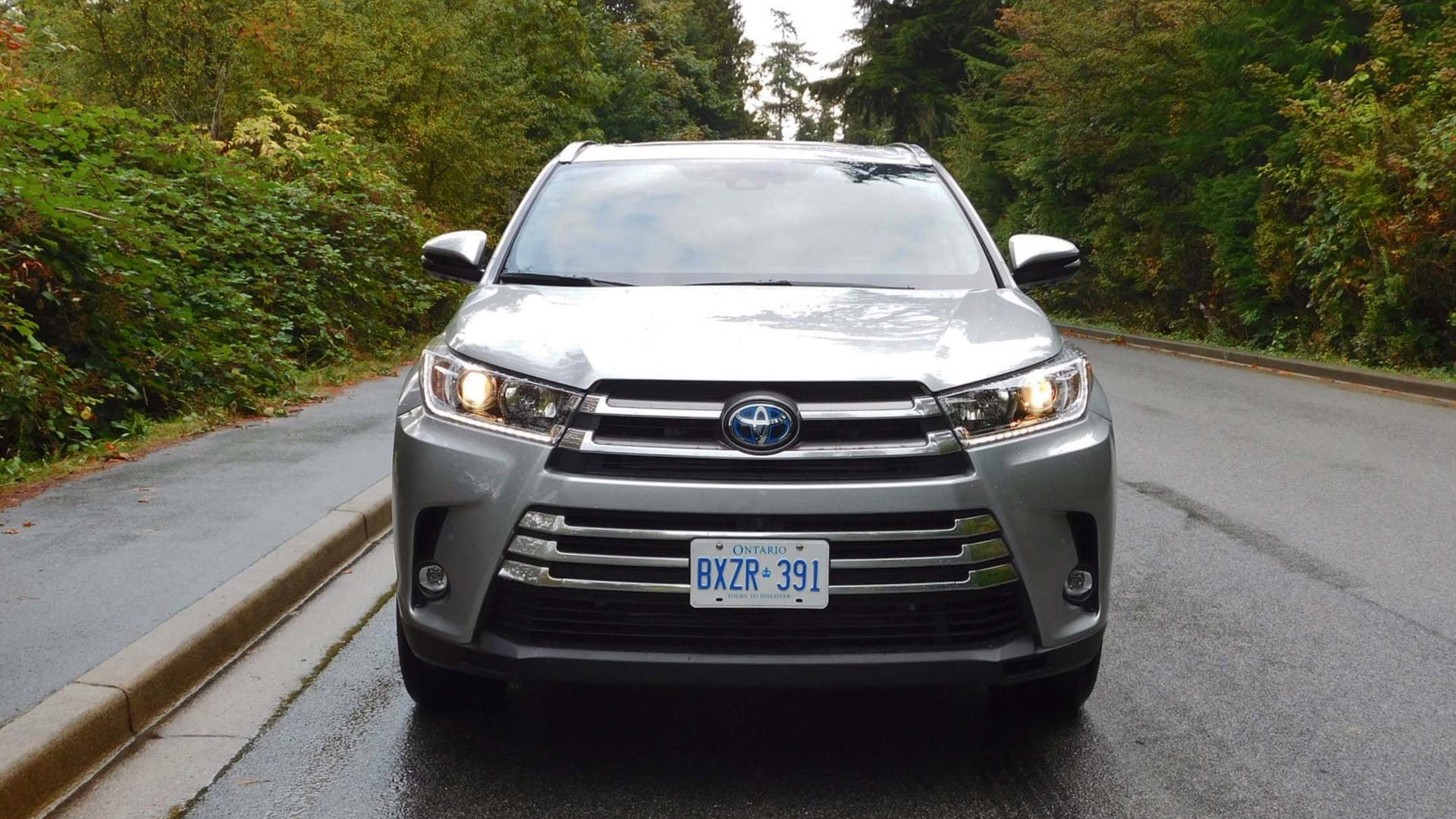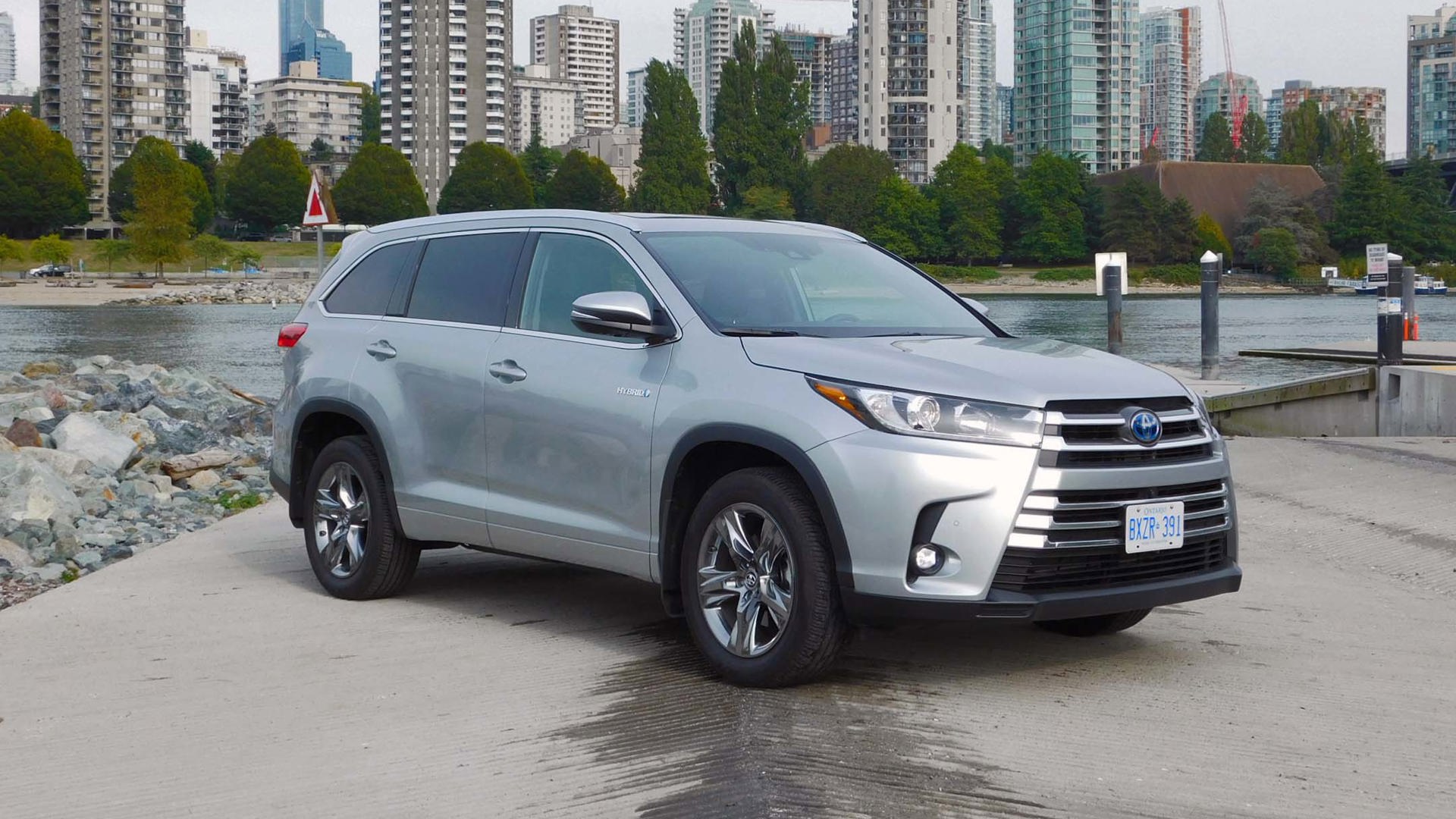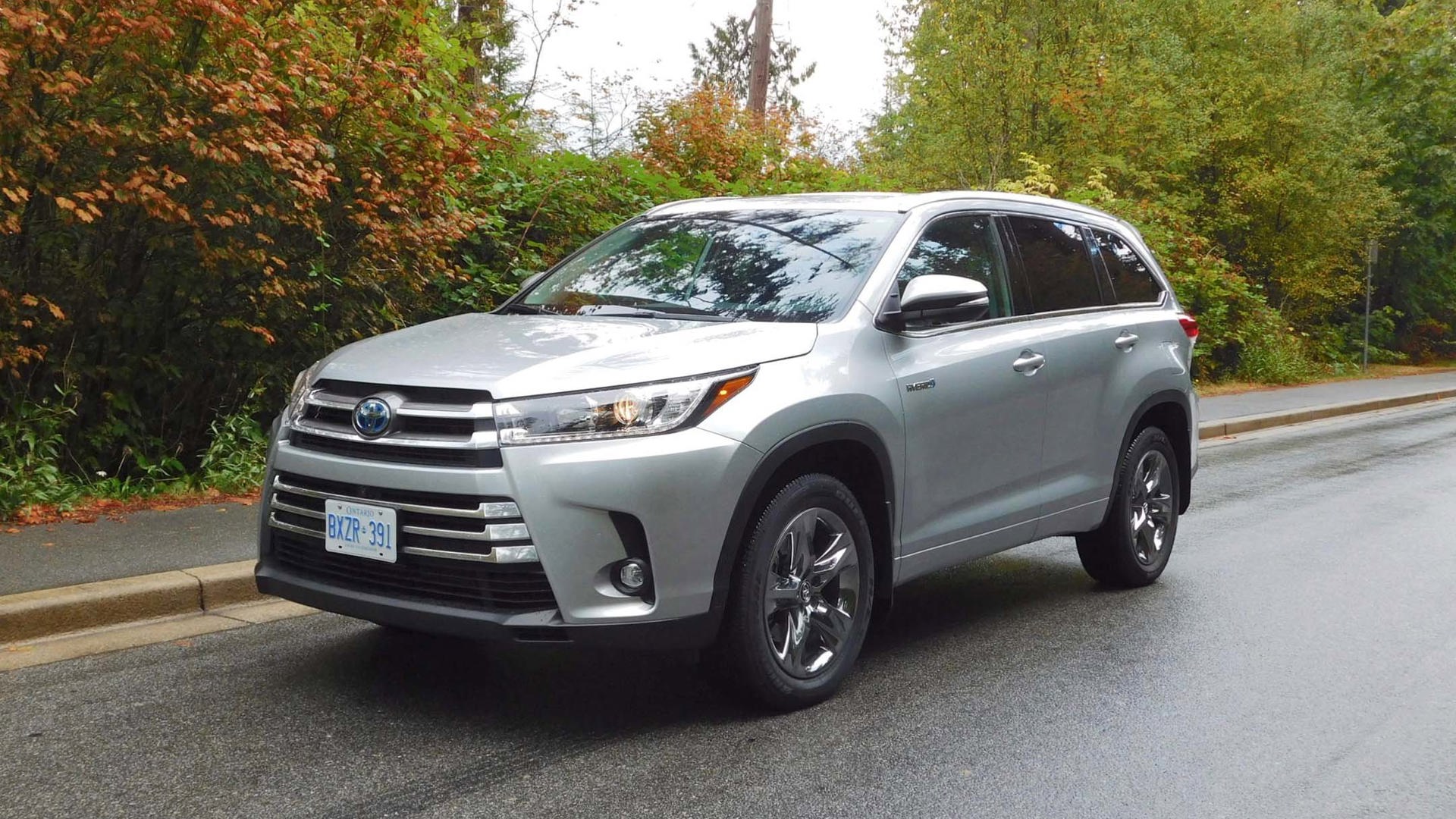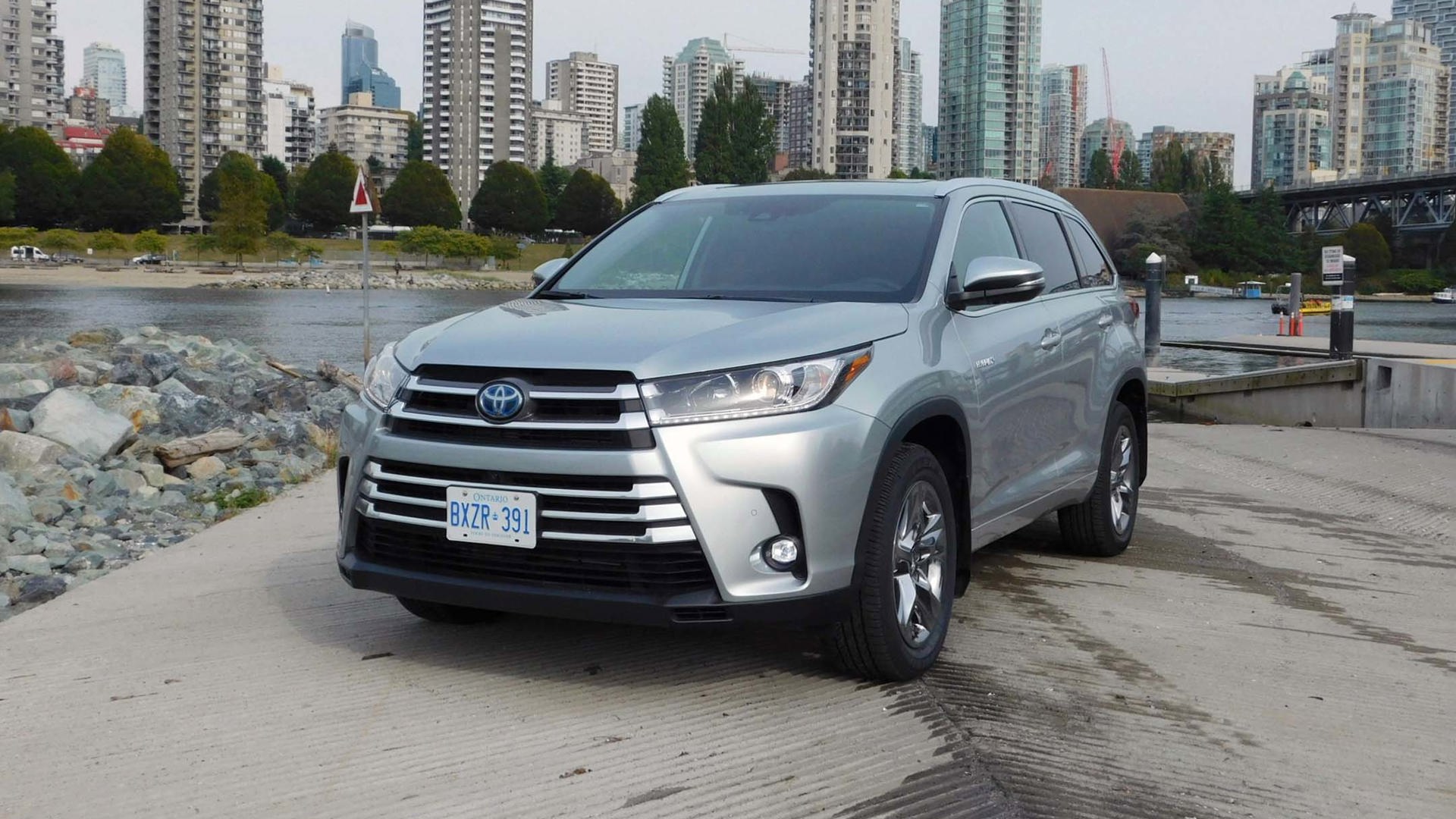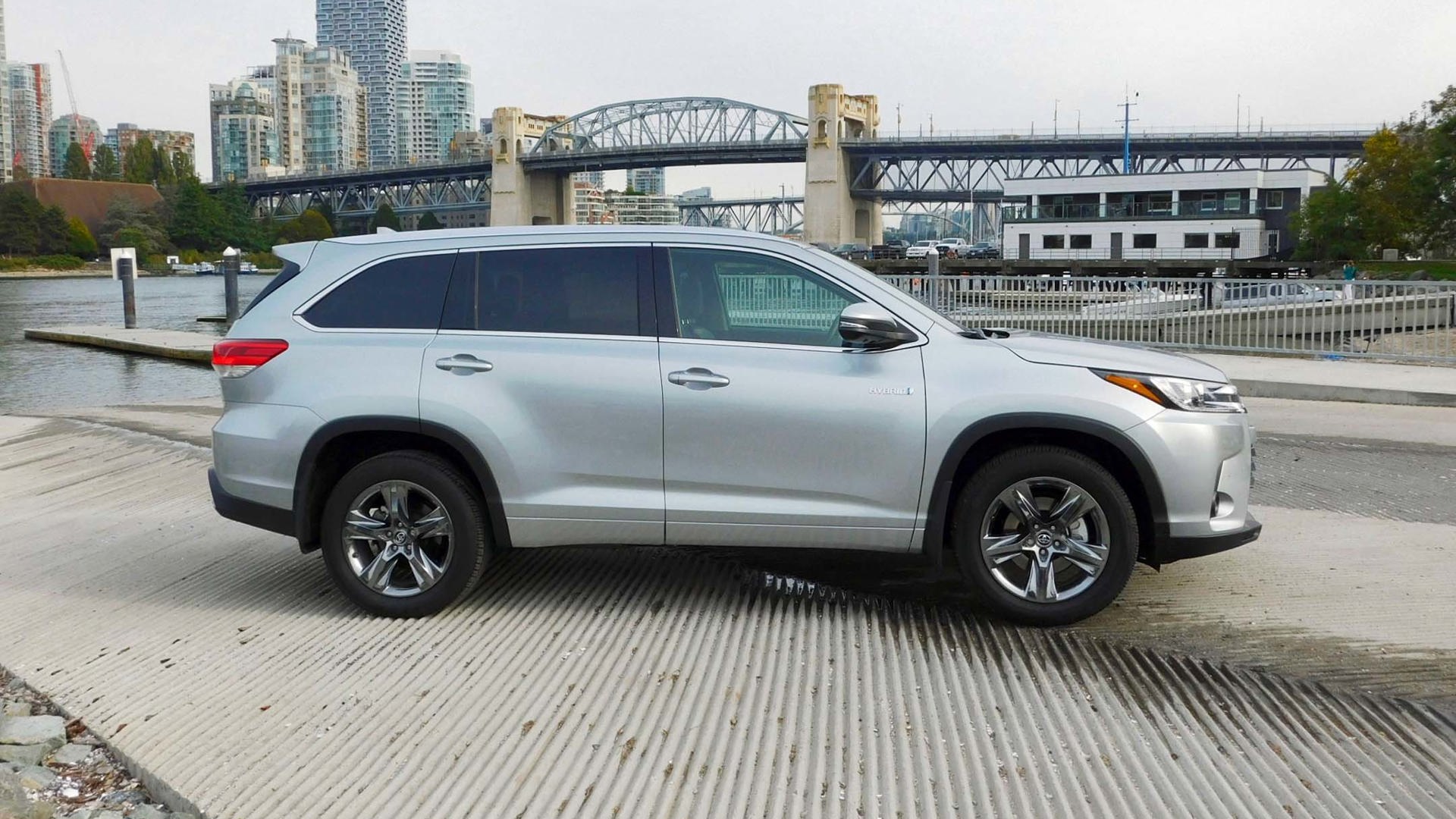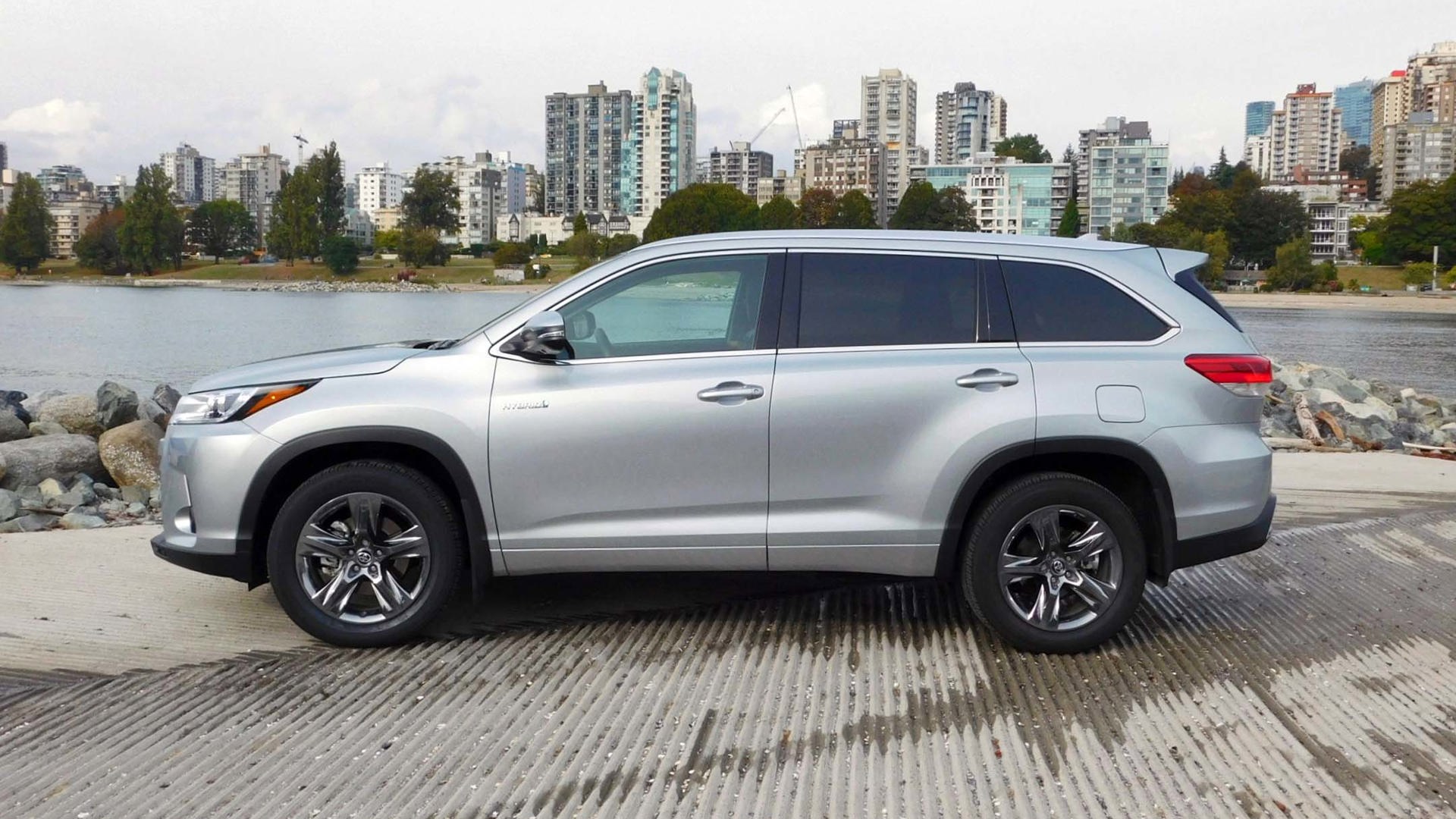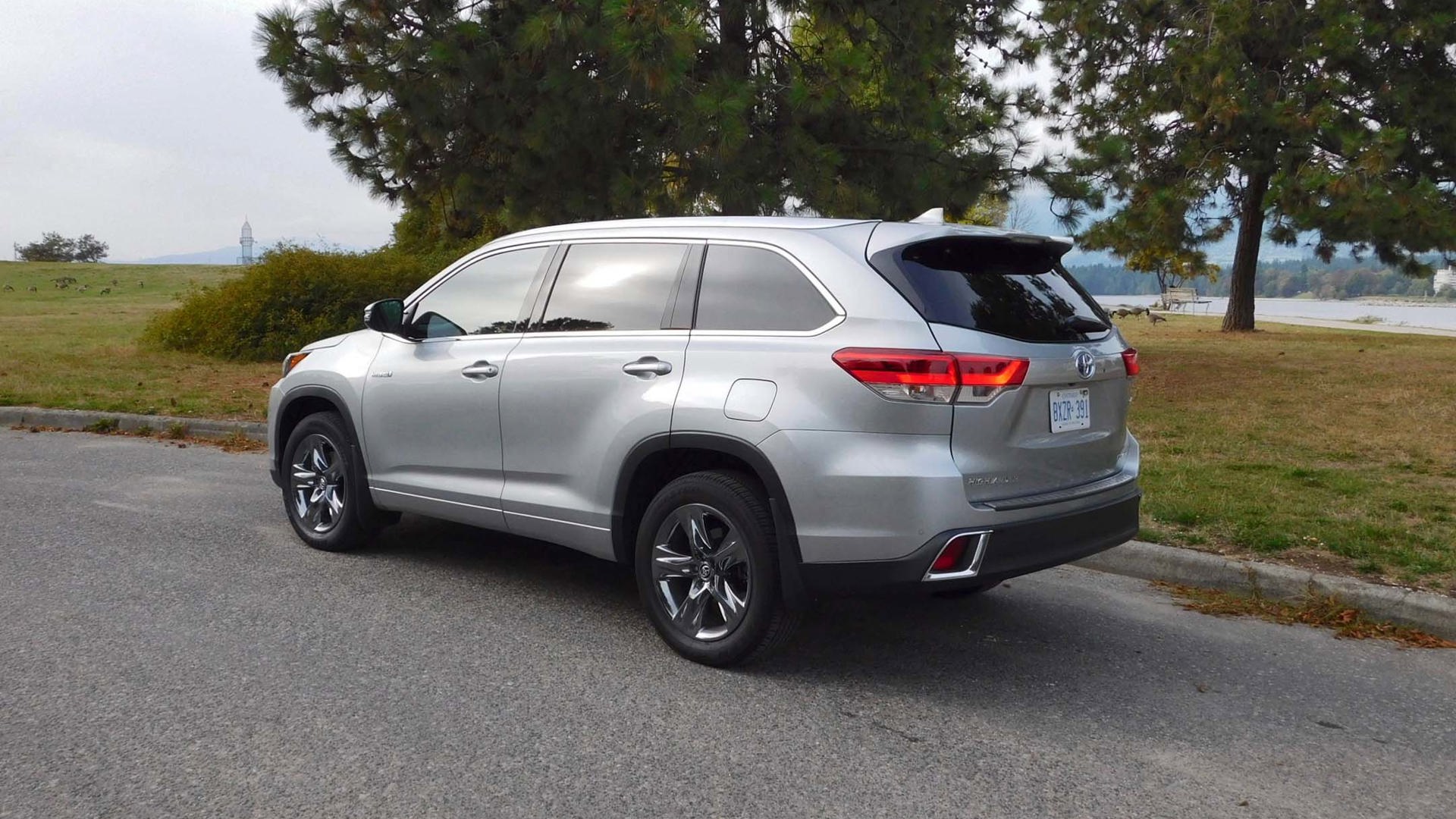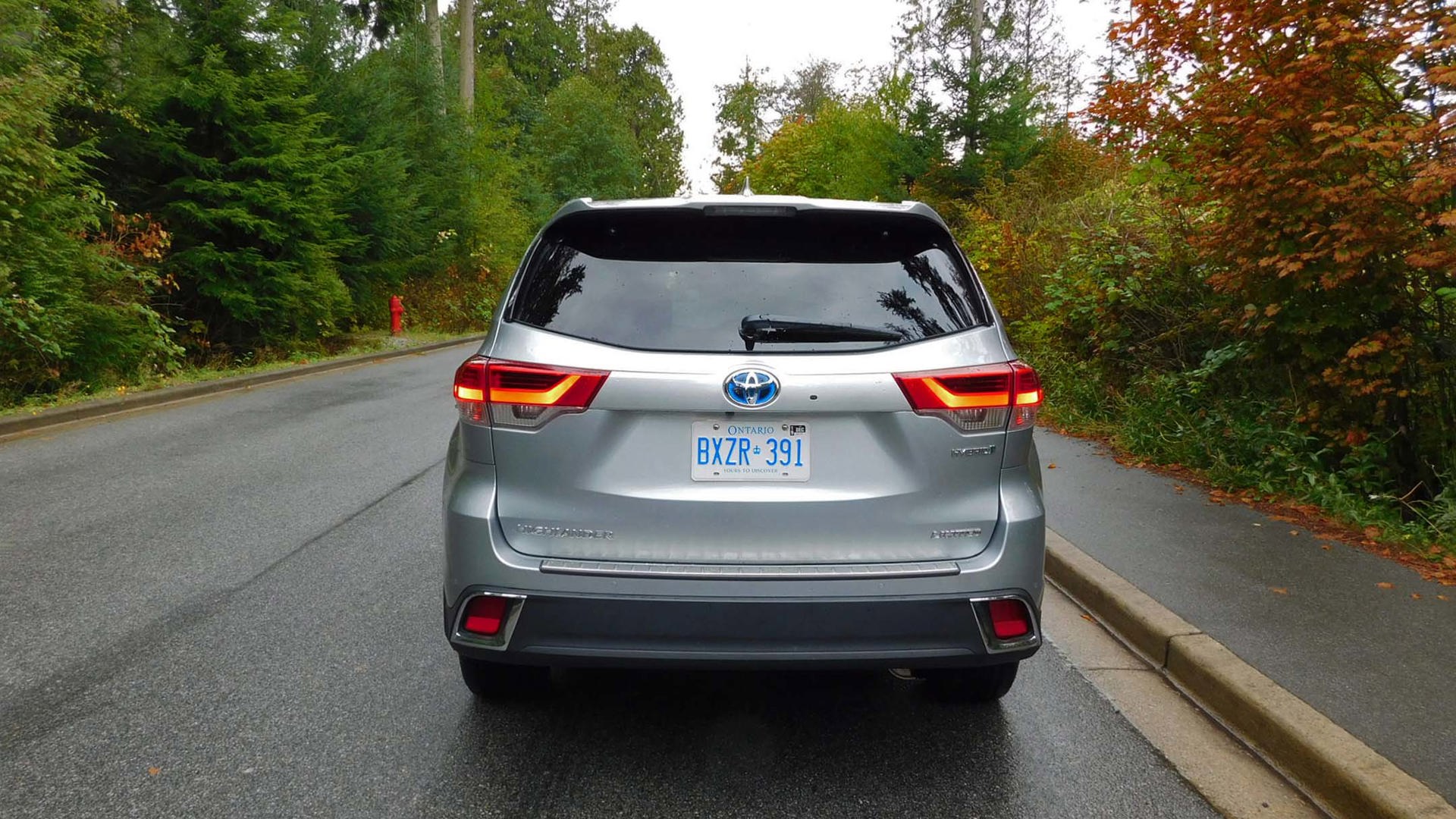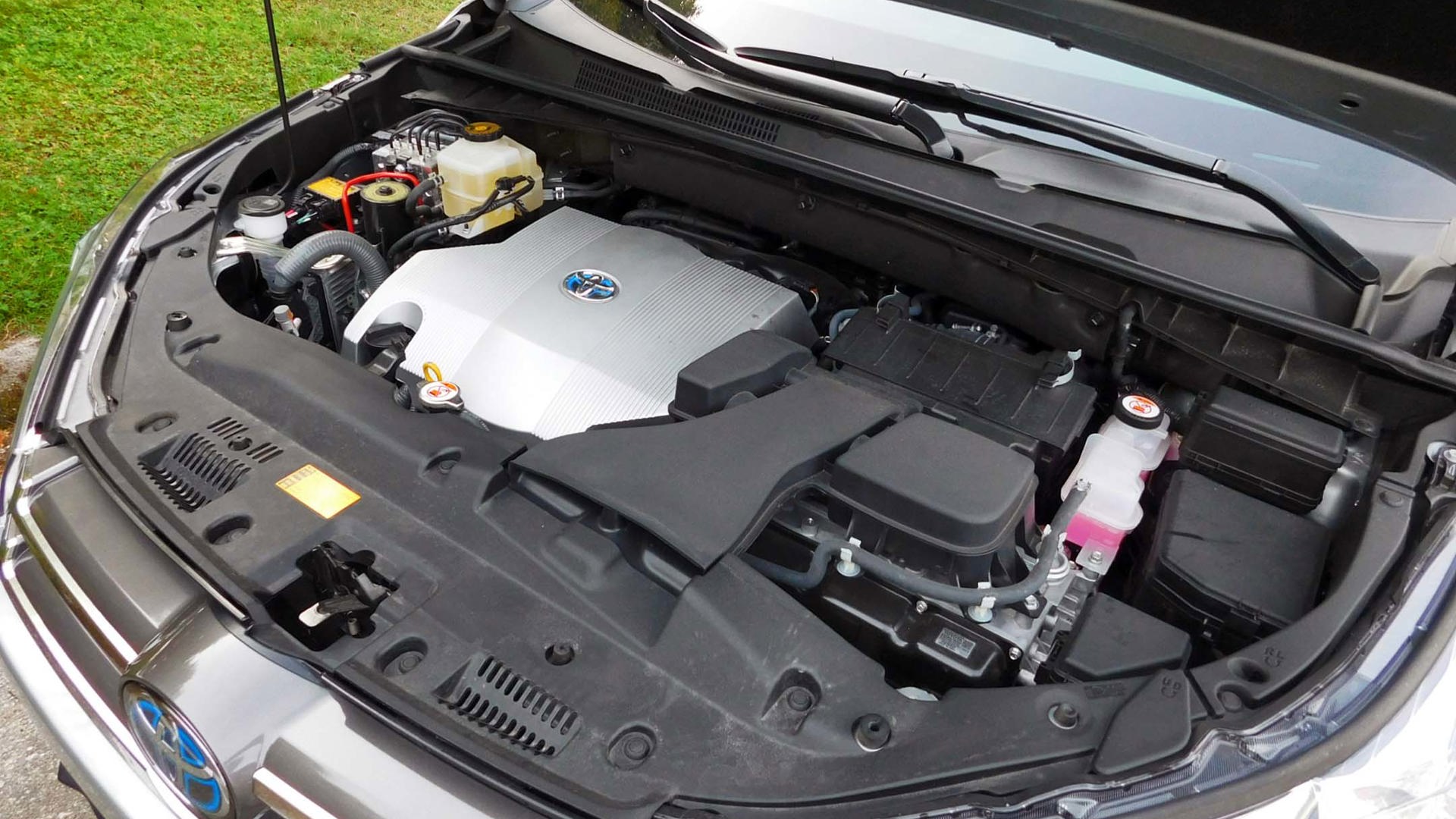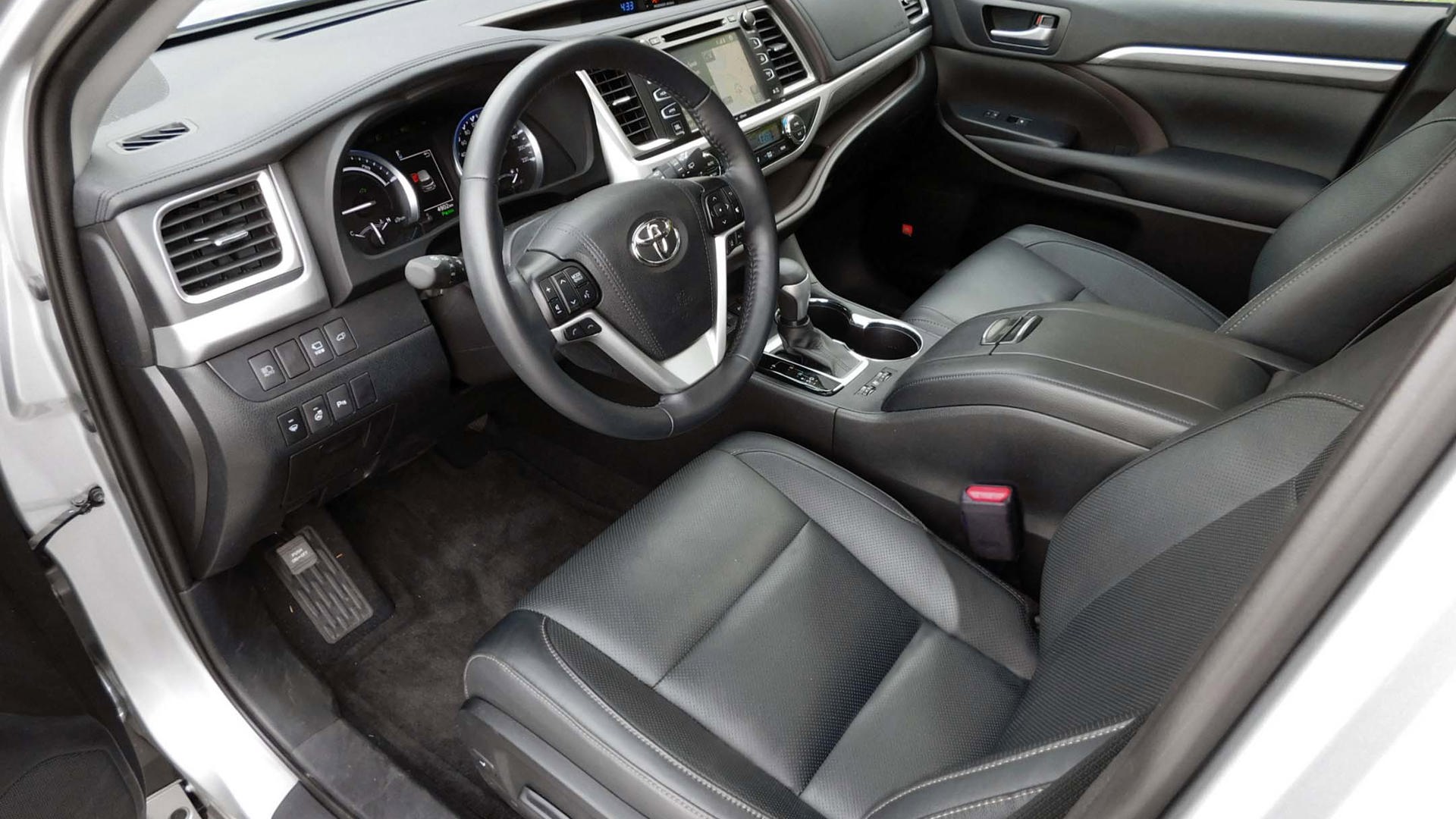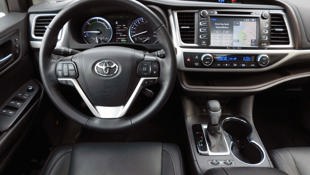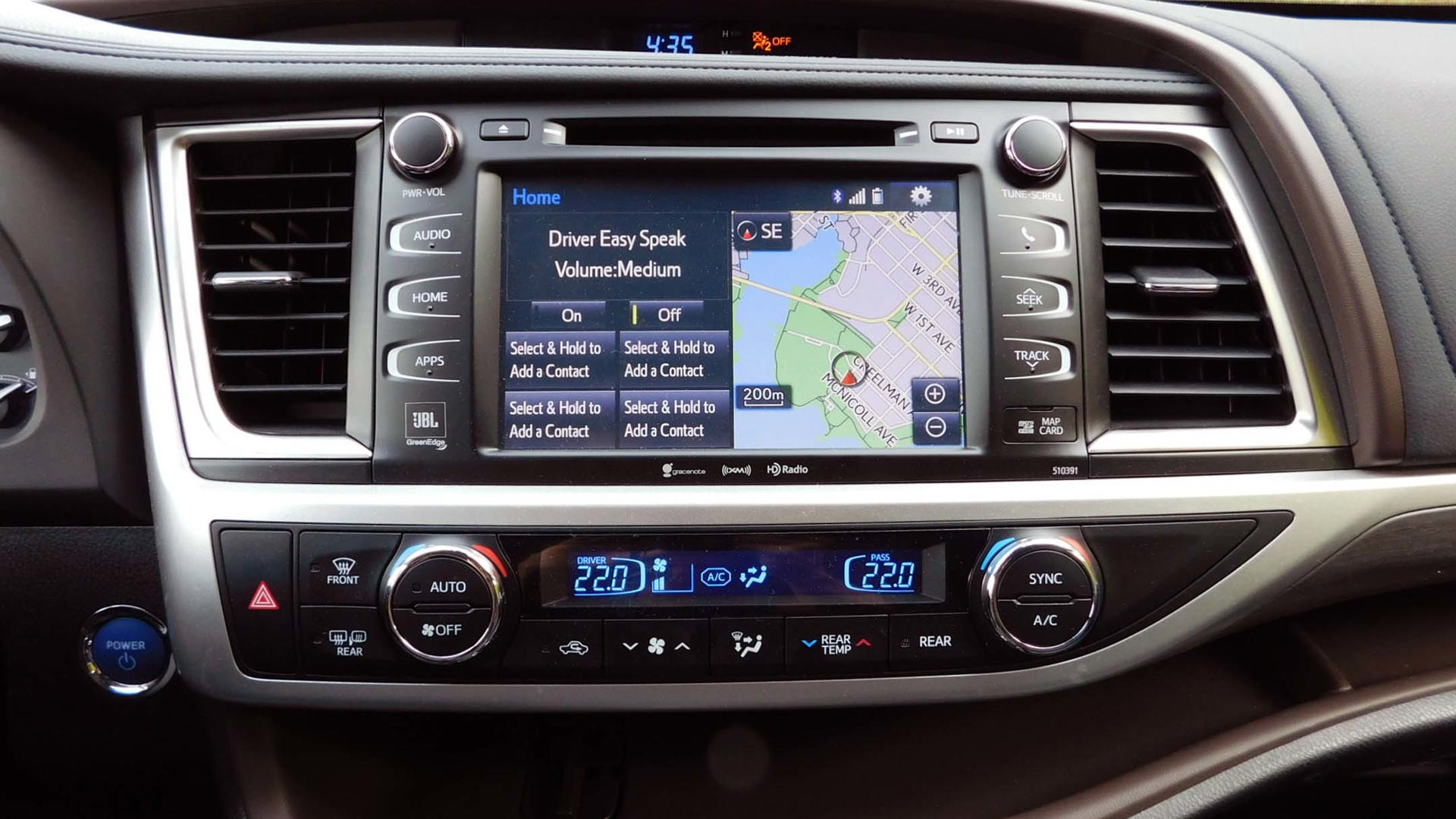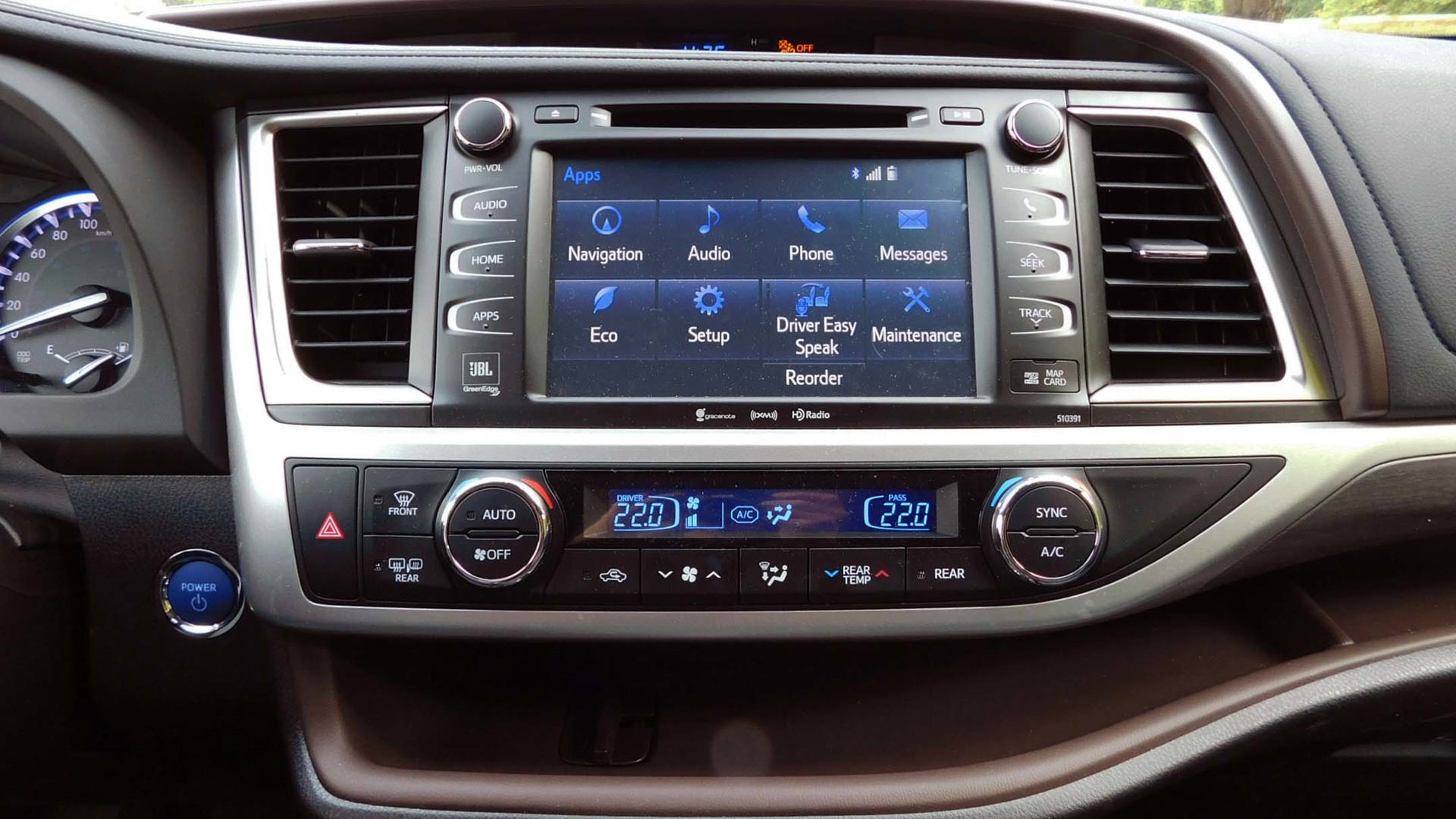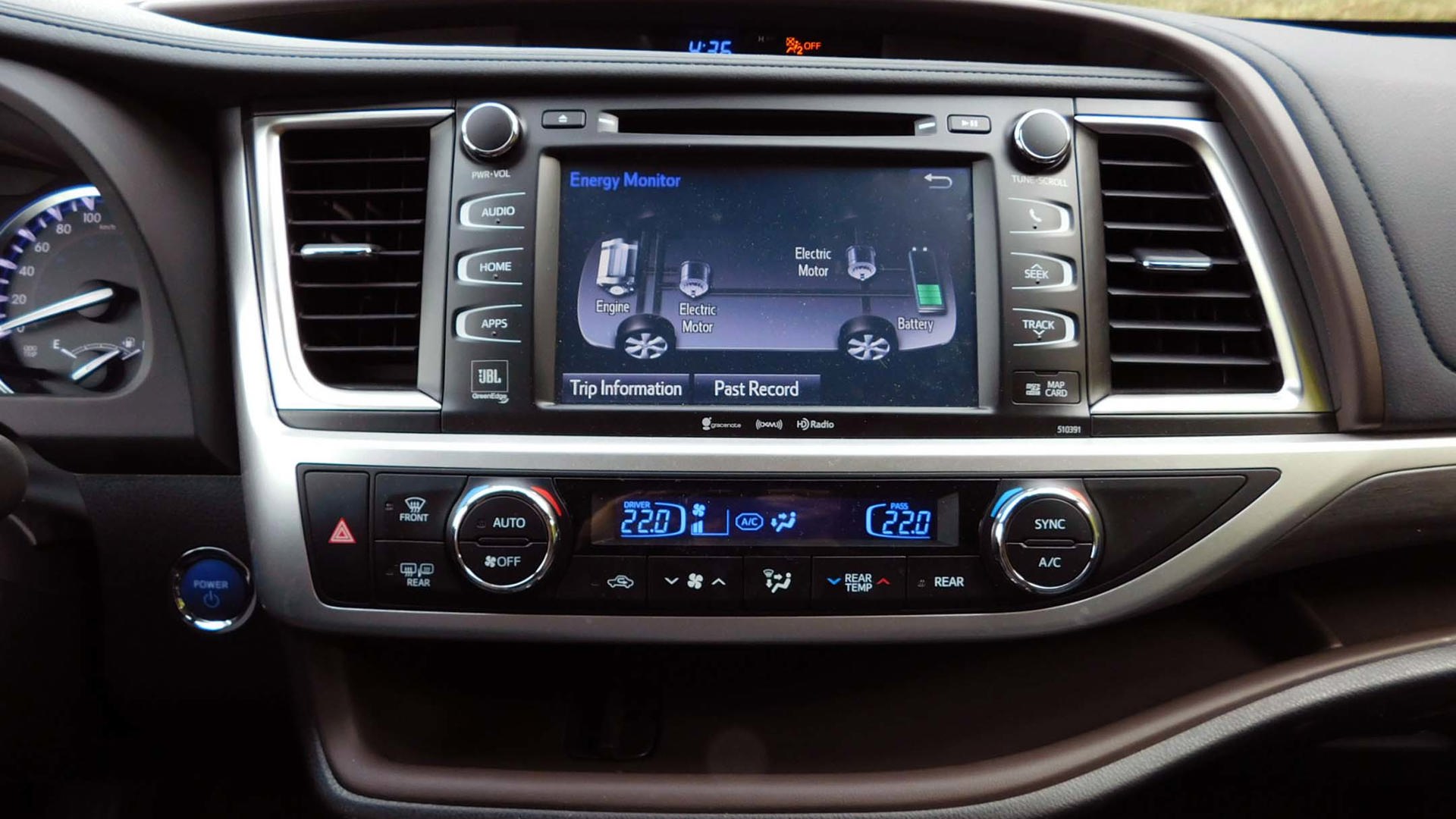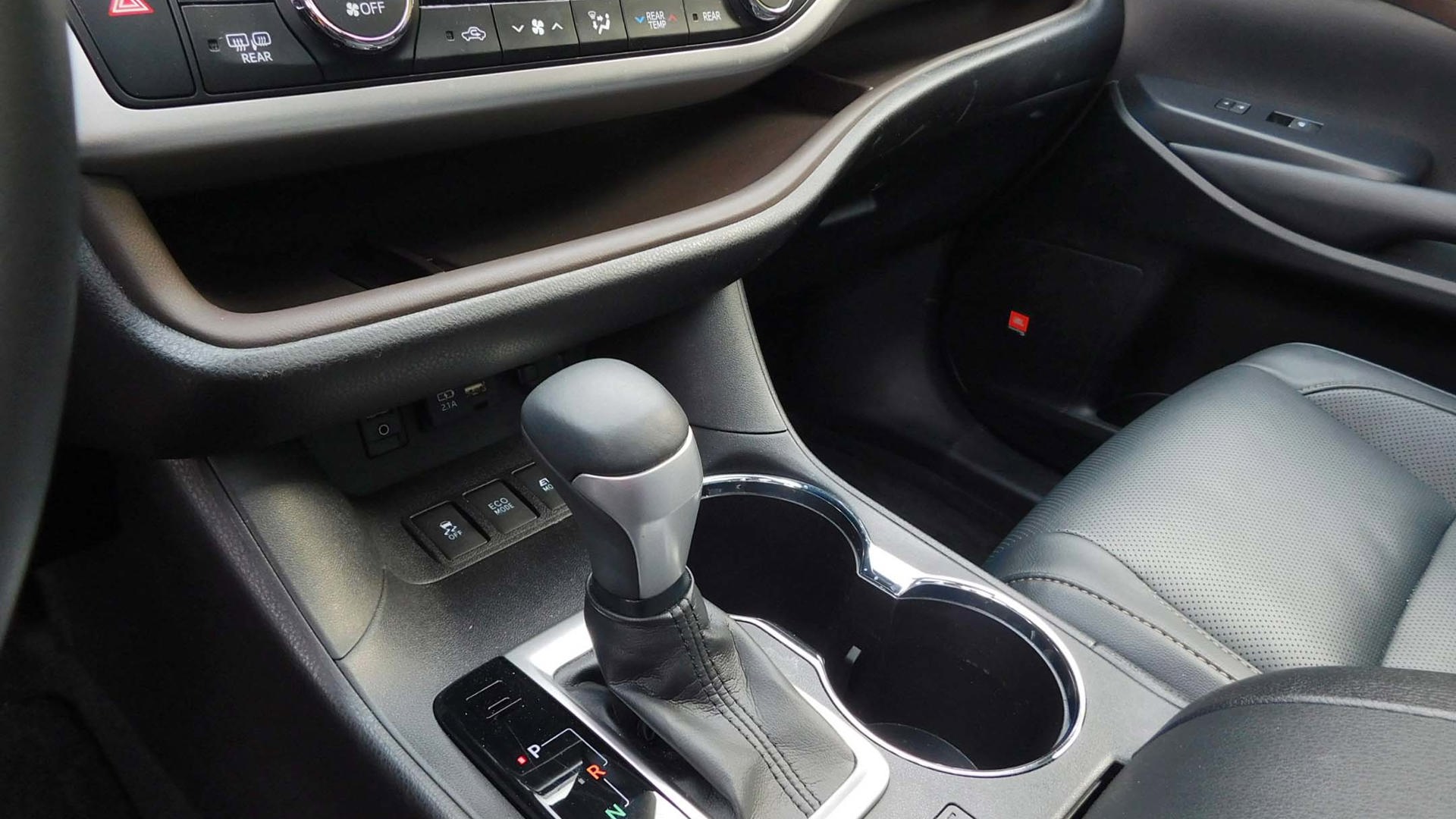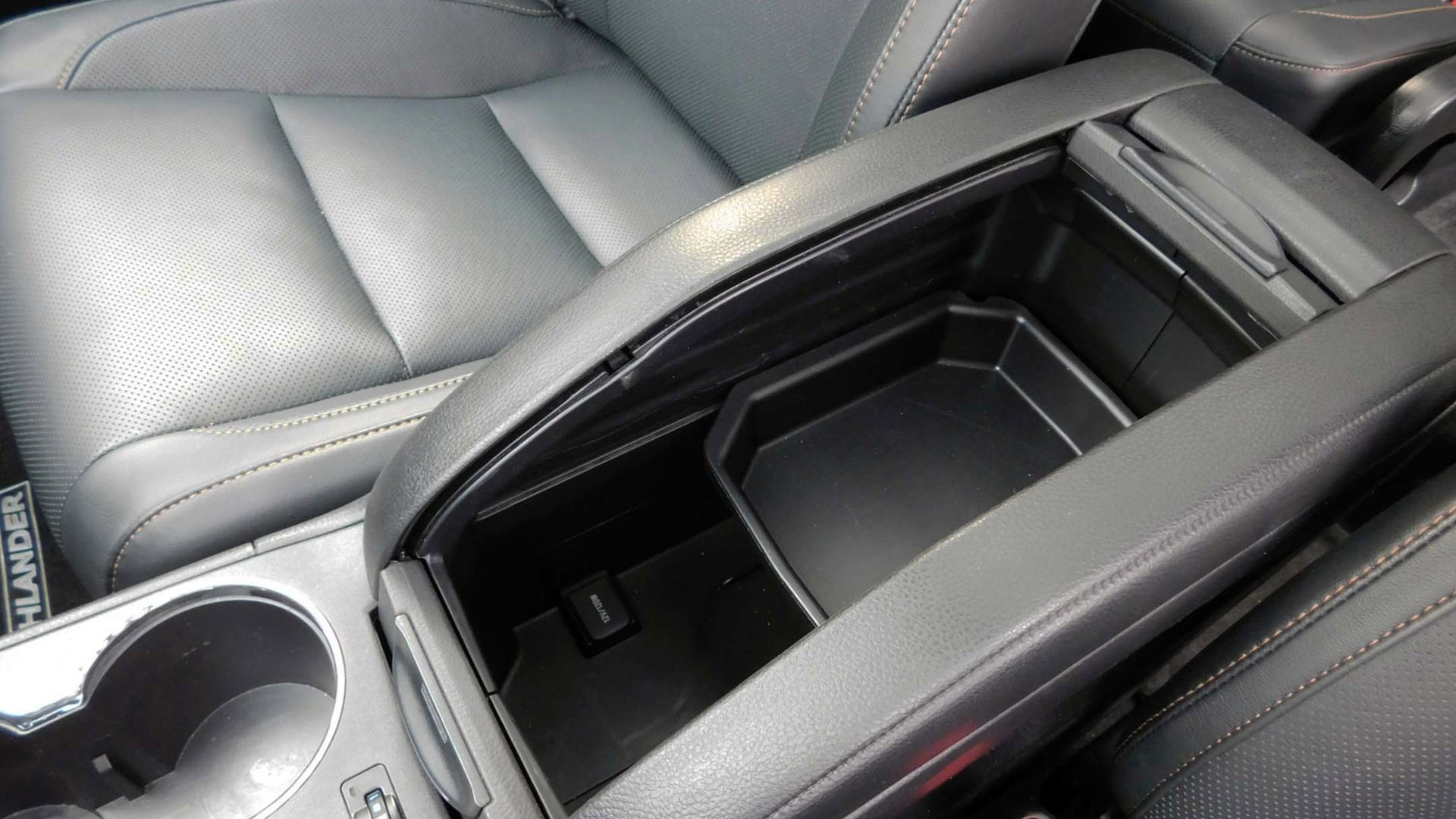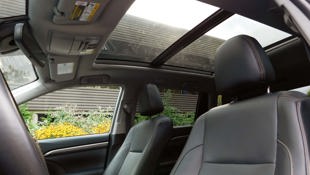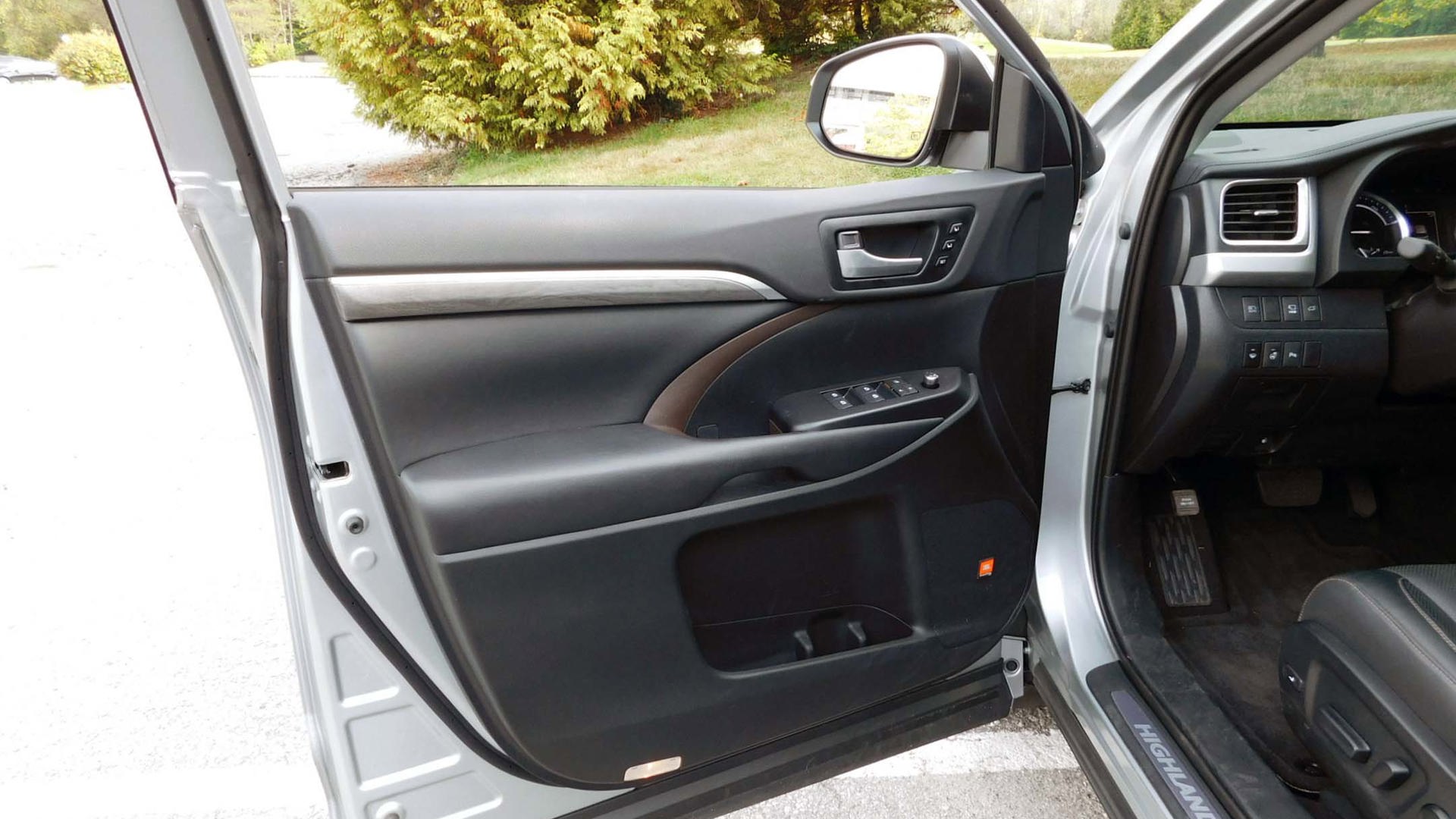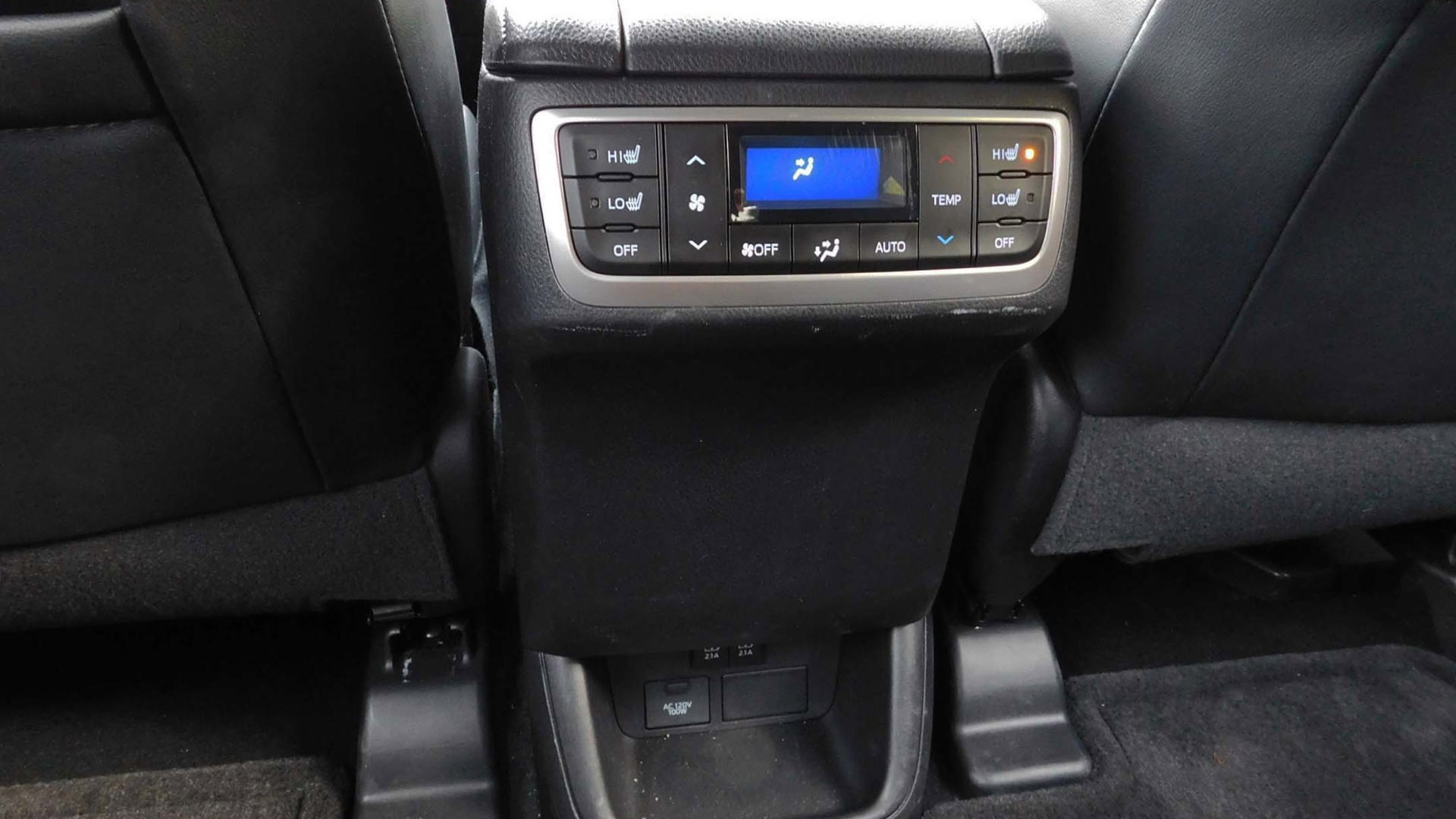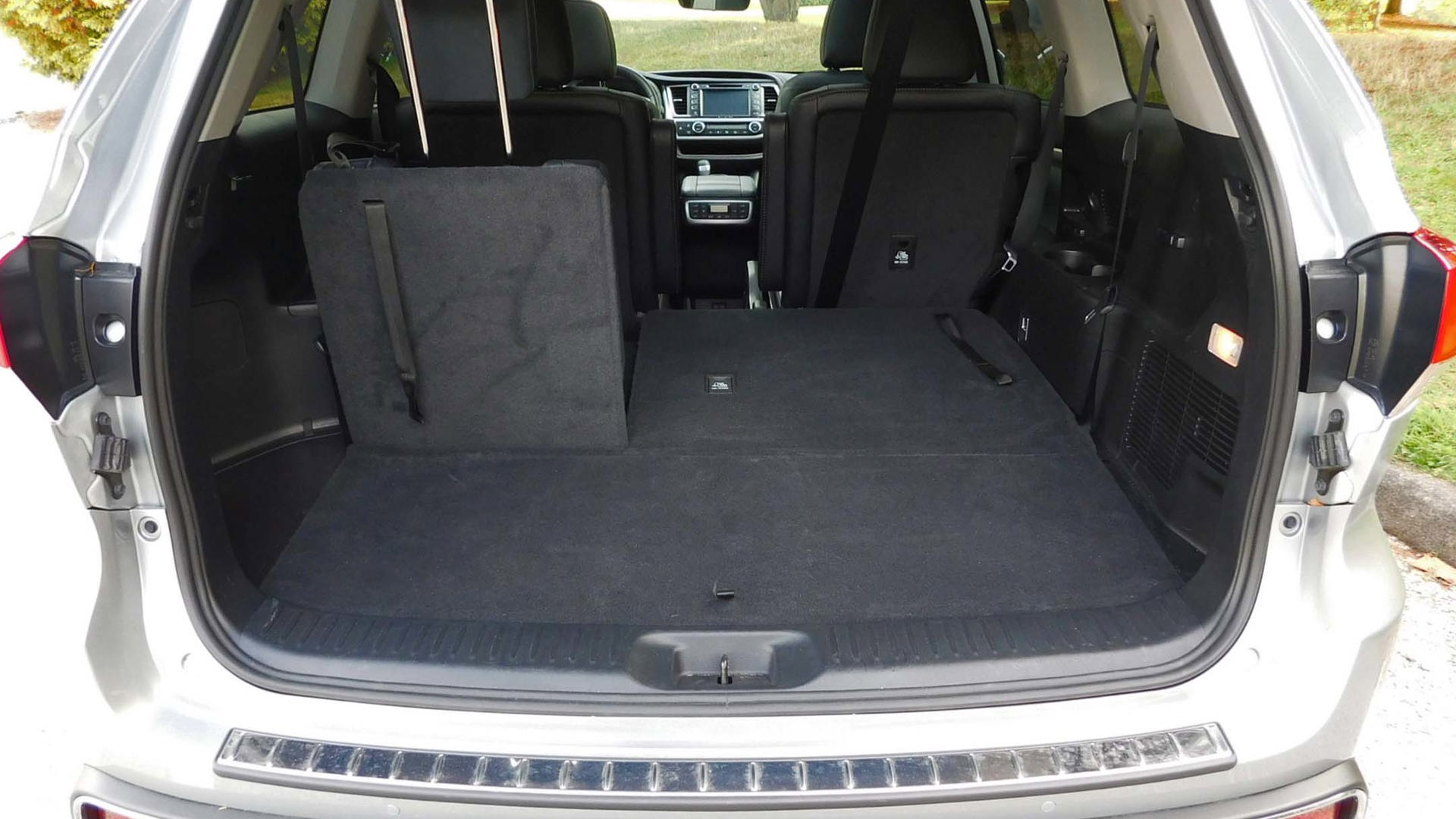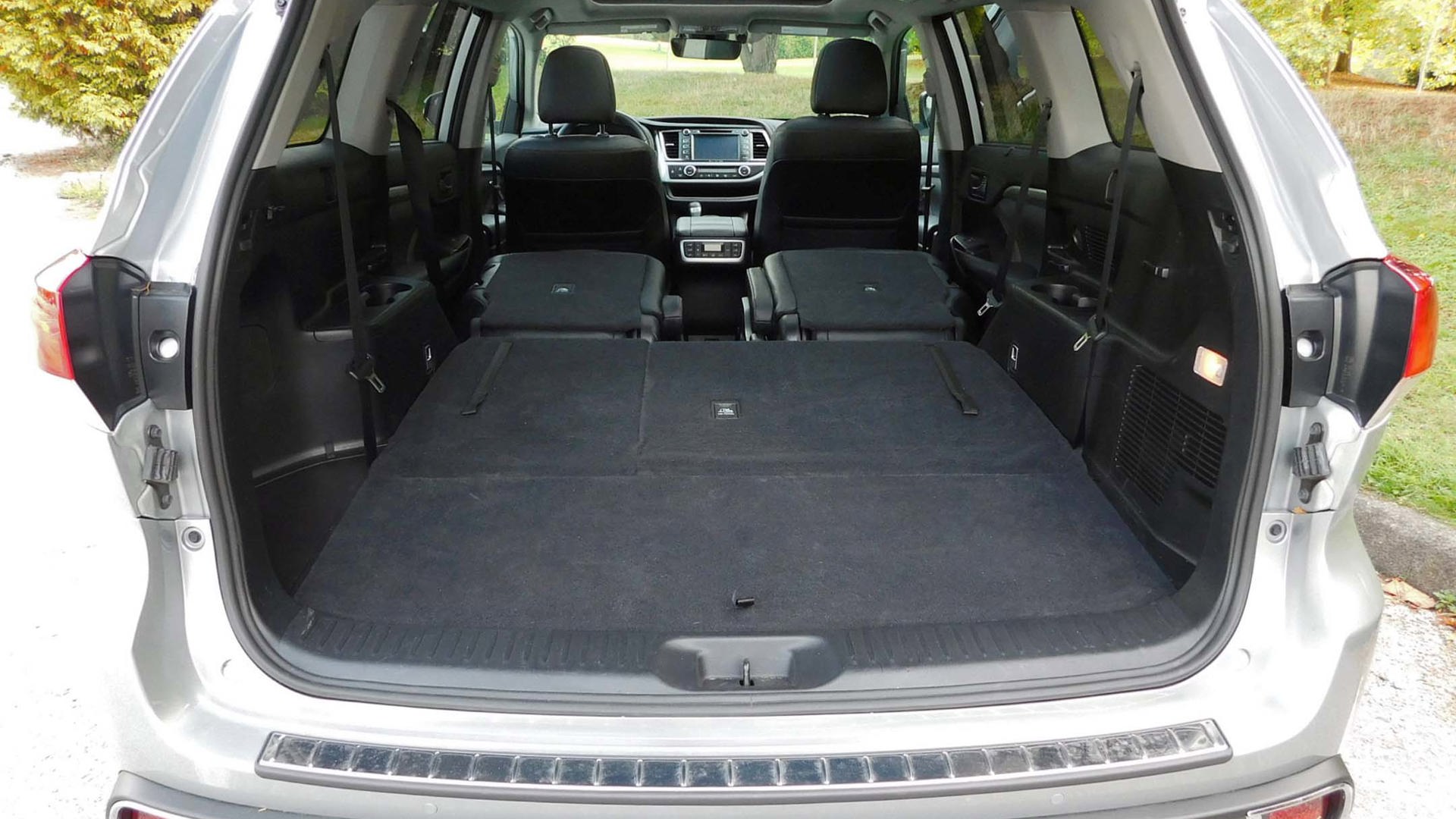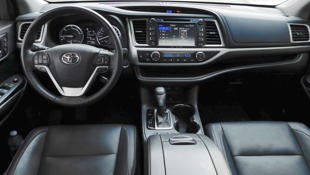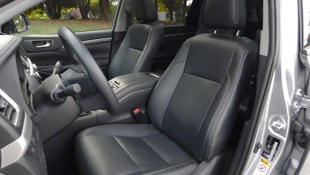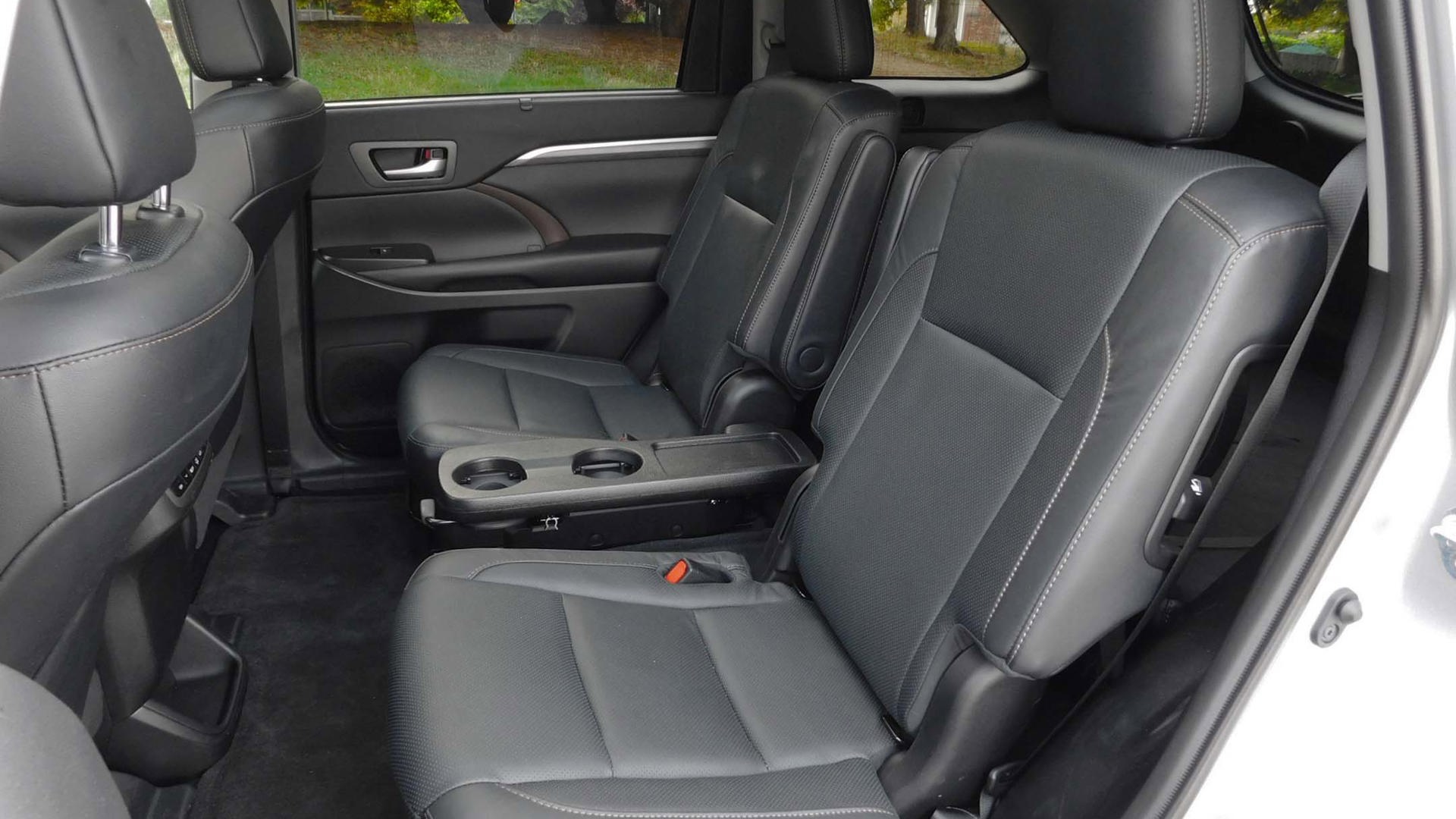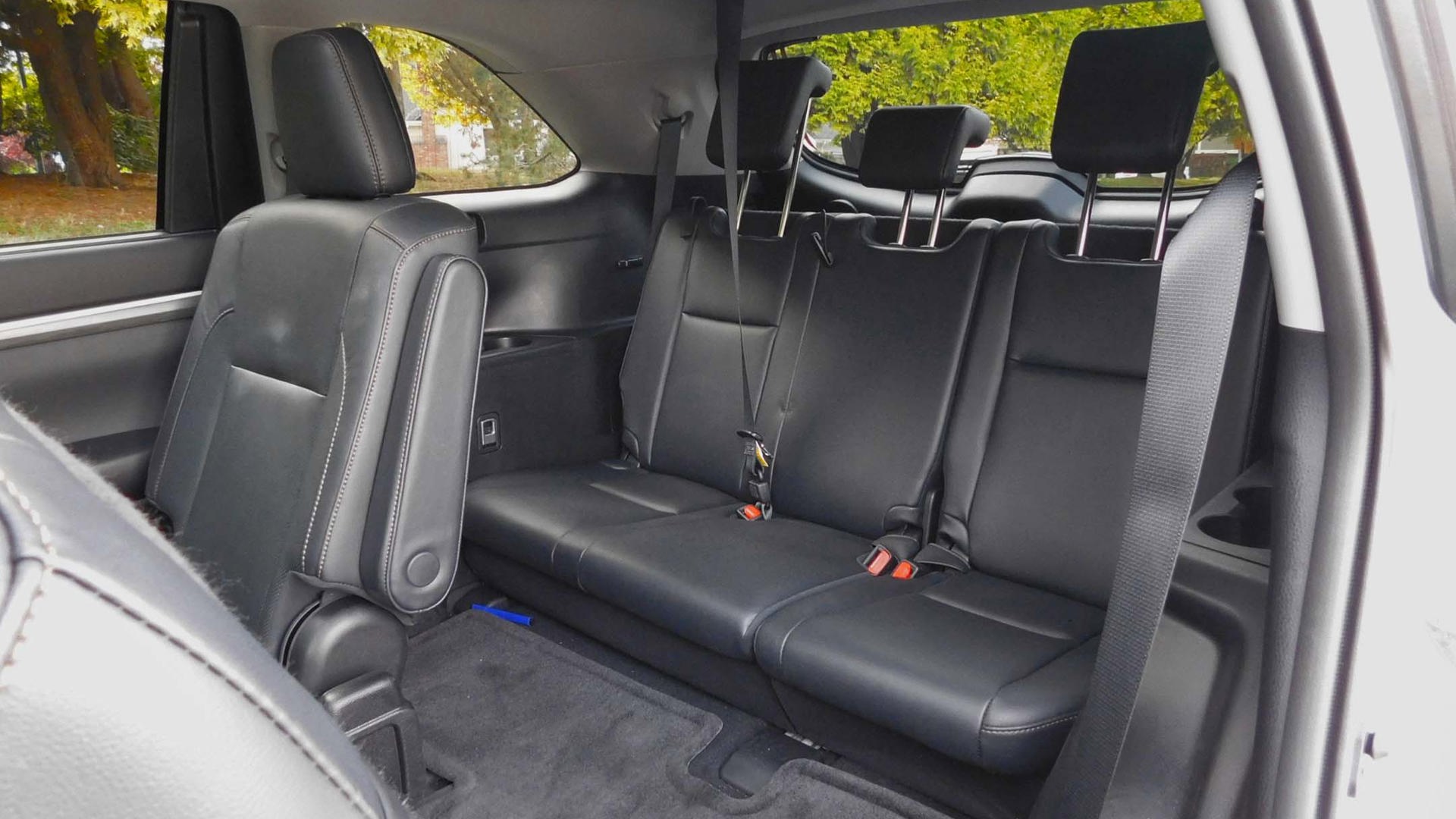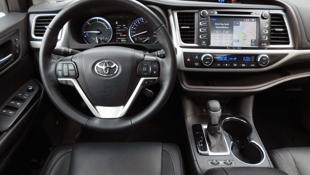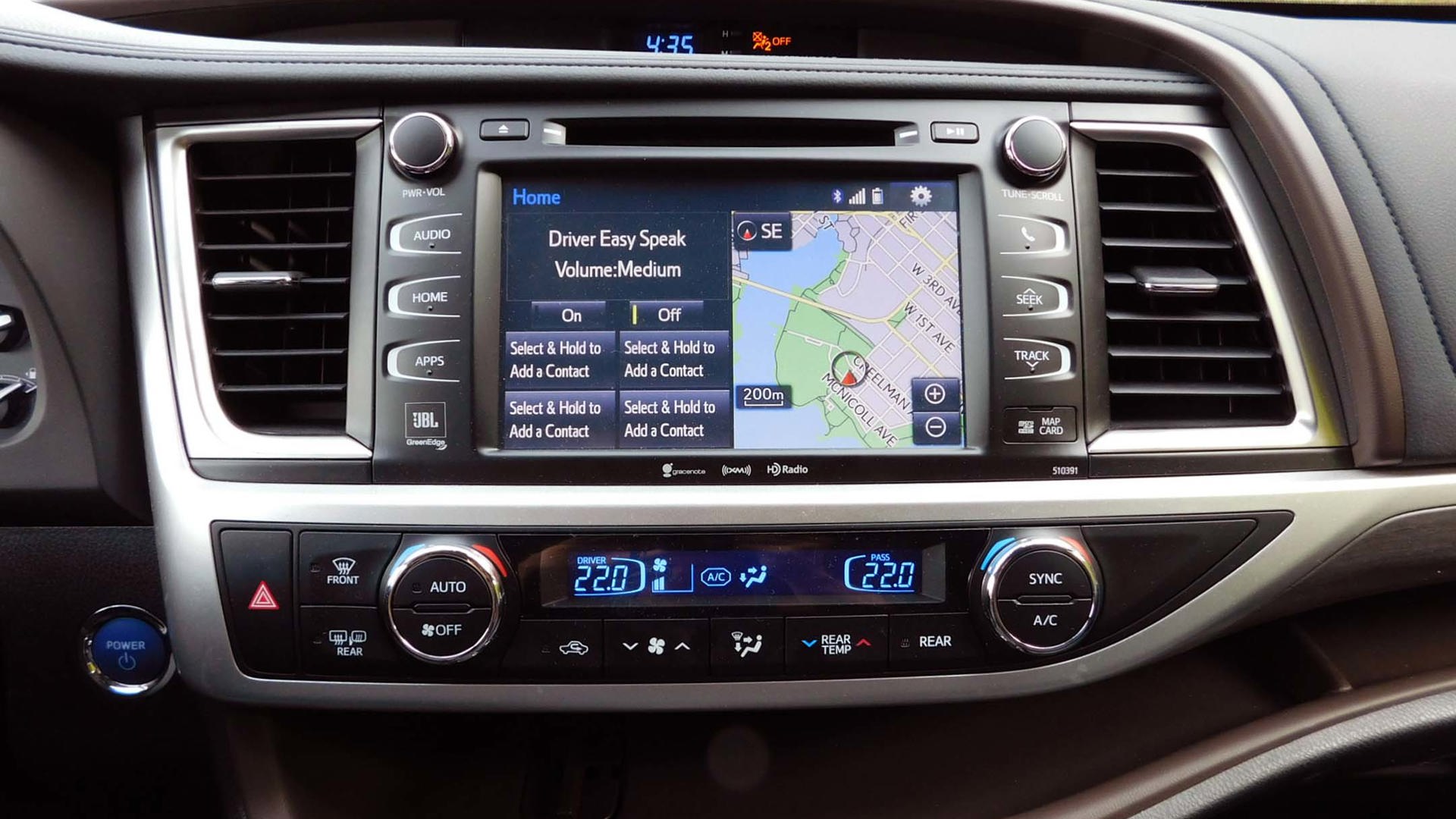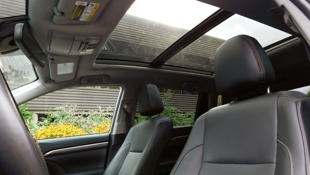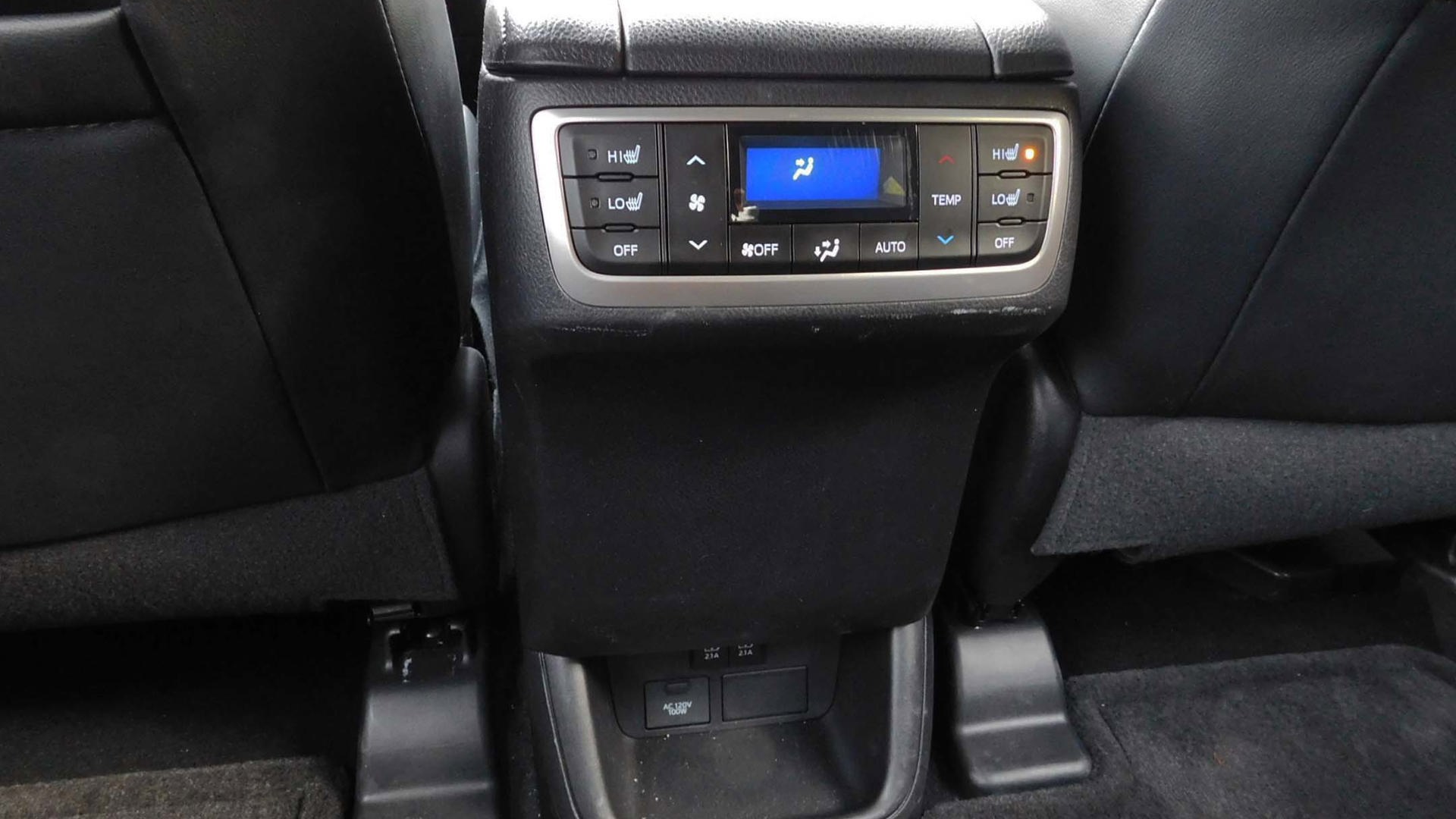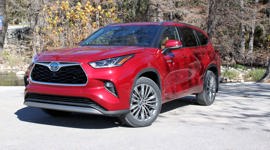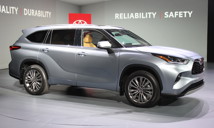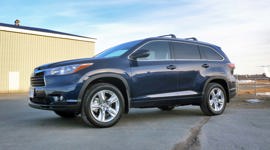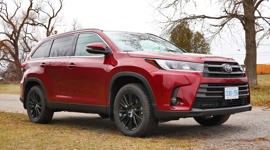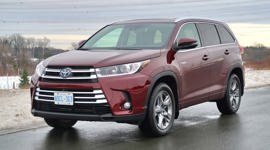 AutoTrader SCORE
AutoTrader SCORE
-
STYLING7/10
-
Safety9/10
-
PRACTICALITY8/10
-
USER-FRIENDLINESS7/10
-
FEATURES7/10
-
POWER8/10
-
COMFORT8/10
-
DRIVING FEEL7/10
-
FUEL ECONOMY8/10
-
VALUE7/10
Canadians love their midsize SUVs, and there’s no shortage of choice out there for buyers who want the versatility of a big, capable three-row. Toyota’s entry in the market, the Highlander, stands out by blending in. It’s a sensible and well-thought-out offering that features excellent predicted reliability ratings, abundant in-cabin storage, and everyday livable comfort.
In hybrid guise, the Highlander steps out from the crowd somewhat with its efficiency-first all-wheel-drive powertrain – a feature shared only with the latest Ford Explorer and the Mitsubishi Outlander plug-in hybrid.
The Highlander Hybrid offers significant fuel savings during city driving compared to its conventionally powered sibling (8.1 L/100km versus 12.0 L/100 km), but highway savings are minimal and hybrid buyers pay both out of pocket and out back – the hybrid costs nearly $5,200 more than an equivalent conventionally powered Highlander, and has 688 kg less towing capacity.
Styling: 7/10
Boxy is better when it comes to maximizing the interior space in an SUV, and the Highlander manages to strike a nice balance between squared-off practicality and nicely sweeping style. It’s not a head-turner by any stretch, but it does have a reasonably handsome, hunkered-down look overall. My Limited trim tester amped things up with eye-catching black chrome-style 19-inch alloy wheels, although it’s worth noting that the finish is actually plastic cladding fitted over the alloys.
Power: 8/10
Power for the all-wheel-drive-only Highlander Hybrid is from a 3.5L V6 teamed up with a continuously variable automatic transmission and a pair of electric drive motors. The gasoline motor and one of the electric motors are connected to the front wheels, with the second electric motor driving the rear wheels. The setup is not just more fuel-efficient than the conventionally powered Highlander, it’s also more powerful: The hybrid makes a total of 306 net hp versus 295 hp for the non-hybrid.
On the road, the hybrid drivetrain is quiet, easygoing, and plenty quick enough off the line thanks to the instant torque of the electric motors. The sprint from zero to 100 km/h takes around seven seconds, and poking the throttle prompts decent response at any speed. It’s noteworthy that the low-speed transitions between electric-only and hybrid mode is jerky at times, but generally speaking, the drivetrain is commendably smooth. As noted, the hybrid does pay a price in terms of towing capacity, which is rated at 1,588 kg (3,500 lb) versus 2,268 kg (5,000 lb) for the non-hybrid.
Fuel Economy: 8/10
Fuel consumption for the Highlander Hybrid Limited is rated at 8.1 L/100 km city, 8.5 highway, and 8.3 combined, compared to 12.0 city, 8.9 highway, and 10.6 combined for the equivalent non-hybrid. My tester was showing a long-term average of 9.0 L/100 km when I picked it up, but I didn’t do quite that well, getting closer to about 9.5 L/100 km in mixed driving. That’s still pretty good for a big SUV, and certainly compares favourably to the 13 L/100 km mixed average I achieved in a 2019 Kia Sorento V6 earlier in the year.
Features: 7/10
In Limited trim, the Highlander Hybrid checks pretty much all the feature boxes, including the must-haves and the nice-to-haves. Standard equipment at this trim level includes a panoramic power sunroof, keyless entry, push-button start, perforated leather upholstery, three-zone automatic climate control, heated and ventilated power-adjustable front seats, heated rear seats, interior ambient lighting, heated tilt/telescoping steering wheel, power liftgate, rear sunshades, parking sonar, birds-eye view back-up camera, a trio of 12V plugs, and more.
The impressive-sounding 12-speaker JBL audio system has an eight-inch touchscreen infotainment display, and features AM/FM/CD/MP3/WMA playback, Bluetooth compatibility, satellite radio, built-in navigation, auxiliary input, USB input, and a unique “Driver EasySpeak” feature. This picks up the driver’s voice and plays it through the rear speakers to better communicate with those in the back – a boon to harried parents and fact-filled amateur tour guides alike.
Missing from the infotainment lineup (and preventing the Highlander Hybrid Limited from scoring higher in this category) is Apple CarPlay or Android Auto compatibility (present in 2020 models), and Wi-Fi hotspot capability.
Practicality: 8/10
With only 391 L of cargo space behind the third row, the Highlander Hybrid doesn’t quite have the cargo capacity of, say, Volkswagen’s Atlas (which has 581 L behind the rearmost seats), a penalty of its underfloor battery. But in all other respects it scores high for practicality, with plenty of in-cabin storage (big points for the across-the-dash storage shelf and commodious console bin), easy-to-fold rear seats, and power outlets for everyone.
The Limited trim is perhaps a little less practical than its XLE sibling, as it dispenses with the centre second-row seat in favour of twin captain’s chairs, reducing the seating capacity from eight to seven. But for a family of four with only occasional need to transport extra passengers, the undeniable advantage of providing some separation for siblings in the back seats may be well worth the reduced total seating capacity.
Comfort: 8/10
The first- and second-row seats of the Highlander Hybrid Limited score high marks for comfort, with good support, plenty of room to stretch out, excellent adjustability, and seat heaters for all positions (the front seats get ventilation too). The third-row seats, however, as in many mid-size SUVs, are less comfortable. They have limited legroom (they’re mounted close to the floor, so adults must sit with their knees up high) and offer comparatively thin padding. If you’ll be carrying teens or adults in the back with any regularity, a roomier SUV such as the aforementioned Atlas might better fit the bill.
User Friendliness: 7/10
With its useful interior space, easy-to-operate seat folding mechanisms, power liftgate, and excellent dynamic back-up camera with birds-eye view, the Highlander Hybrid Limited is, for the most part, a thoroughly easy-to-live-with conveyance. There’s a reason Toyota sells so many Highlanders and has avoided meddling with the formula for the past several years.
But Toyota’s big SUV does have a few shortcomings that drag down its user friendliness score: First is the lack of any hands-free system for opening the liftgate. If I’m going to put up with the annoying beeping and turtle-like speed of a power liftgate, I don’t expect to have to put down whatever I’m carrying to begin the whole performance. Otherwise, I’d prefer to just have a manually operated liftgate. The infotainment interface could also use a bit of ergonomic tweaking: The touchpoints are decently sized, which is good, but the menu system itself is sometimes a bit convoluted and counterintuitive.
Safety: 9/10
The Highlander Hybrid Limited comes with Toyota’s full array of Safety Sense active driver assistance technology, including lane-departure alert with steering assist, pre-collision system with pedestrian detection, blind spot monitoring, auto high-beam, and adaptive cruise control. Combined with excellent safety ratings from both the National Highway Traffic Safety Administration (NHSTA), where it scored a five-star overall rating, and Insurance Institute for Highway Safety (IIHS), where it earned a 2019 Top Safety Pick designation, the Highlander is a solid choice for the safety-conscious.
Driving Feel: 7/10
It’s doubtful that anyone purchasing a Highlander is focussed on driving dynamics, and Toyota’s big SUV certainly makes no pretensions of being a sports car. What it does offer is a smooth and comfortable ride, with competent cornering abilities and reassuringly powerful brakes, and this should be enough to satisfy most buyers – even if the handling is somewhat vague and disconnected. If you’re looking for a more engaged driving experience, you should check out the excellent Mazda CX-9.
Value: 7/10
Priced at $57,260 before freight and taxes, the Highlander Hybrid Limited is a mid-market family hauler that’s pushing into luxury territory both in terms of price and appointments. Audiophiles will certainly appreciate the upgraded 12-speaker JBL audio system, and the second-row captains chairs with panoramic roof will be a hit if you usually carry no more than two passengers in the back. But if you can live without these and the other Limited trim features (ambient lighting, birds-eye camera, ventilated front seats, heated steering wheel, heated second-row seats, driver’s seat memory system, fog lights, and the big 19-inch wheels) then the Hybrid XLE represents a more budget-friendly hybrid option at $50,959.
Verdict
Overall, the Toyota Highlander Hybrid is an excellent SUV option for city-dwellers (especially if you factor in the reduced brake wear a hybrid can expect thanks to its regenerative brakes), but it’s not necessarily a clear-cut choice: Buyers planning on doing much towing may be better served by a conventionally powered Highlander, and those looking to save money will want to do the math before deciding whether the upfront cost of the hybrid justifies their expected long-term savings.
| Engine Displacement | 3.5L |
|---|---|
| Engine Cylinders | V6 hybrid |
| Peak Horsepower | 306 hp combined |
| Peak Torque | 163 lb-ft @ 4,400 rpm |
| Fuel Economy | 8.1/8.5/8.3 L/100 km cty/hwy/cmb |
| Cargo Space | 391 / 1198 / 2356 L behind 3rd/2nd/1st row |
| Model Tested | 2019 Toyota Highlander Hybrid Limited |
| Base Price | $57,260 |
| A/C Tax | $100 |
| Destination Fee | $1,815 |
| Price as Tested | $59,175 |
|
Optional Equipment
None
|
|
